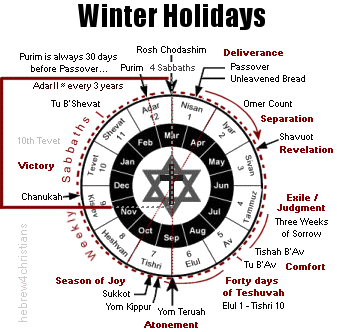|
Jewish Holiday Calendar
For January 2018 site updates, please scroll past this entry....
The winter holidays (חגי החורף) remember special times when God acted on behalf of His people so that they would triumph over their enemies, and therefore they prophetically picture the final victory in the world to come.
The Winter Holidays:
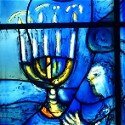
Note that in accordance with tradition, the following holiday dates begin at sundown:
- Month of Kislev Sat. Nov. 18th [eve] - Sun. Dec. 17th [day])
- Four Sabbaths: Vayetzei, Vayishlach, Vayeshev, Miketz
- Dates for Chanukah 2017 (5778):
- 1st Chanukah candle - Tues. Dec. 12th [i.e., Kislev 25]
- 2nd Chanukah candle - Wed. Dec. 13th
- 3rd Chanukah candle: Thur. Dec. 14th
- 4th Chanukah candle: Fri. Dec. 15th
- 5th Chanukah candle: Sat. Dec. 16th
- Month of Tevet (Sun., Dec. 17th [eve] - Tues. Jan. 16th [day])
- Four Sabbaths: Vayigash, Vayechi, Shemot, Vaera
- Dates for Chanukah (continued):
- 6th Chanukah candle: Sun. Dec. 17th (Rosh Chodesh Chanukah)
- 7th Chanukah candle: Mon. Dec. 18th
- 8th Chanukah candle: Tues. Dec. 19th [Zot Chanukah]
- Winter Solstice: Wed. Dec. 20th (Kislev 20)
- Christmas: Sunday, Dec. 24th at sundown (Tevet 7)
- Tenth of Tevet - Thur. Dec. 28th; daytime fast over the seige of Jerusalem
- Secular New Year: Mon. Jan. 1st, 2018 (Tevet 15)
- Month of Shevat (Tues., Jan. 16th [eve] - Wed. Feb. 14th [day])
- Month of Adar (Wed., Feb. 14th [eve] - Fri. March 16th [day])
- Month of Nisan (Fri., March 16th [eve] - Sat. April 14th [day])
Note: Some Jewish calendars list the first day of a holiday without indicating that the holiday begins sundown the night before... So, for example, while Purim begins Wednesday, February 28th at sundown, some calendars may indicate that it occurs on Thursday, March 1st...
January 2018 Updates
Note: If any page content appears to be missing, click: refresh the page...
Seeing the Unseen...
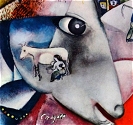
01.31.18 (Shevat 15, 5778) Just as the patriarch Noah foresaw the great cataclysm to come, so we are to understand that the world above our heads and under our feet is likewise destined to destruction, as we also await the promised world to come. As it is written in our Scriptures: "Lift up your eyes to the heavens, and look at the earth beneath; for the heavens vanish like smoke, the earth will wear out like a garment, and they who dwell in it will die in like manner; but my salvation will be forever (וישׁוּעָתִי לְעוֹלָם תִּהְיֶה), and my righteousness will never be dismayed" (Isa. 51:6).
This idea is repeated in the New Testament: "For as were the days of Noah, so will be the coming of the Son of Man" (Matt. 24:37). "But the Day of the LORD will come like a thief, and then the heavens will pass away with a roar, and the heavenly bodies will be burned up and dissolved, and the earth and the works that are done on it will be exposed. Since all these things are thus to be dissolved, what sort of people ought you to be in lives of holiness and godliness, waiting for and hastening the coming of the Day of God, because of which the heavens will be set on fire and dissolved, and the heavenly bodies will melt as they burn? But according to his promise we are waiting for new heavens and a new earth in which righteousness dwells. Therefore, beloved, since you are waiting for these, be diligent to be found by him without spot or blemish and at peace" (2 Pet. 3:10-14).
In light of all this, we choose to look not to the things that are seen but to the things that are unseen. "For the things that are seen are transient, but the things that are unseen are eternal... For the invisible things of Him from the creation of the world are clearly seen, being understood by the things that are made, even his eternal power and Godhead. Therefore we are strangers and exiles on the earth, looking forward to the city that has foundations, whose designer and builder is God" (2 Cor. 4:18; Rom. 1:20; Heb. 11:10,13).
Faith sees the invisible... Our father Abraham was promised descendants as numerous as the stars in the sky or sand on the seashore, despite the fact that he was an old man and his wife had long past the age of bearing children. Abraham believed in the One who gives life to the dead and calls into existence the things that do not exist: "He staggered not at the promise of God through unbelief but was strong in faith, giving glory to God; and being fully persuaded that, what He had promised, He was able also to perform: And therefore it was imputed to him for righteousness" (Rom. 4:19-22). Faith in God trusts in an unseen good, apprehends a future and a hope, and refuses to allow this world to have the last word of what is ultimately real. May we walk by faith, and not by sight, chaverim...
Torah of the Vine...

[ The following is related to the holiday of Tu B'Shevat, "rosh hashanah" for trees... ]
01.31.18 (Shevat 15, 5778) The Word of God speaks: "If anyone does not live in Me, he is cast off as a branch, and withers..." (John 15:6). We find life only as we remain connected to the Source and Conduit of life, who is the Messiah, the Savior and LORD. True life grows out a heart connection with Yeshua, and without that connection our lives become vain and yield no eternal significance (John 15:5). Be forewarned: it is the truth of the Messiah that if you do not live in the Vine you will be destroyed, since life is found in no other Source (John 14:6; Luke 3:9). Be encouraged, trusting friend: the yoke of Messiah is easy, and His burden is light: we cannot create new life by our own efforts nor effect regeneration by means of our own "good works." No, the work of salvation is God's alone, and we partake of that work as we abandon our self-efforts and religious conceits (see Isa. 32:17). There remains, therefore, a Sabbath for the people of God, "for whoever has entered God's rest has also rested from his works as God did from his" (Heb. 4:9-10). This "deep Sabbath" of rest is a matter of trusting that the finished work of salvation has been given on your behalf. Therefore "strive to enter into that rest," for the LORD always effects what is best for you, and nothing is under your control anyway. The path of peace is to surrender to God's care for your life and let the evils and drama of the world flow past you. This is "the work of faith." Look to heavenly reality and not to the vanity and deceits of this world (Col. 3:1-4). Live in Yeshua's Presence, drawing strength and vitality from your relationship with Him. The conditional statement, "If you live in Me and my words live in you" (John 15:7), means that we will know His heart as we heed the message of his truth (i.e., his word) within our hearts.. The fruit of the Holy Spirit is produced as we yield ourselves to the love and presence of God.
וְהָיָה מַעֲשֵׂה הַצְּדָקָה שָׁלוֹם
וַעֲבדַת הַצְּדָקָה הַשְׁקֵט
וָבֶטַח עַד־עוֹלָם
ve·ha·yah · ma·a·seh · ha·tze·da·kah · sha·lom
va·a·vo·dat · ha·tze·da·kah · hash·ket
va·ve·tach · ad · o·lam

"And the work of the Righteousness One shall be peace;
and the service of the Righteousness One shall be quietness
and assurance for ever." - Isa. 32:17
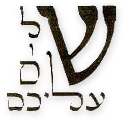
Hebrew Study Card
The "Torah of the Vine" (תּוֹרַת הַּגֶּפֶּן) further teaches us that "every branch that bears fruit will be pruned so that it may bear more fruit" (John 15:2). Note first that it is the healthy branch that will be cut back - not the withered one that will be altogether removed – and this purging process may be painful at times. The heavenly Vinedresser's goal is for the fruitful branch to yield more fruit, to reveal more and more the connection to the Heart of the Vine, so that God is glorified (see John 15:8). The end here is the beatific vision: "Blessed are the pure in heart, for they shall see God" (Matt. 5:8). Note that the Greek word translated "pure" is katharos (καθαρός), sometimes used describe the cleansing of a wound (catharsis), or to describe the unalloyed quality of a substance revealed through refining fire. Sanctification involves "catharisis" of the ego – the exile of carnal desire, the frustration of our will, the release of truth in the inward parts. A faith that thinks God will make us immune to suffering, challenges, and tribulation is an immature and imperfect faith, friends. The goal of "purging" is fruitfulness and blessing, but the agency is not the will of man but the power of God. You are made "clean" through the word of God spoken within your own heart (John 15:3). Your sanctification, however, depends on your communion with God, staying connected to what is real, central, vital, the core truth of God's Presence and love, the ultimate Reality of Life itself.
For more on this, see "The Torah of the Vine: Living in the Divine Connection."
Torah of Trees...
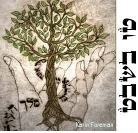
[ Today we observe the holiday of Tu B'Shevat, the "rosh hashanah" for trees... ]
01.31.18 (Shevat 15, 5778) The Torah alludes that human life is like "the tree of the field," i.e., כִּי הָאָדָם עֵץ הַשָּׂדֶה, Deut. 20:19), and many people therefore observe Tu B'Shevat as time to assess man's place within creation as well. Since God created the world for a habitation (Isa. 45:18), some have pictured the world itself as a "great tree" with human beings as its fruit. Indeed, Yeshua often used such agricultural images in his parables. For example, he explained that people are known by the "fruits" of their lives (Matt. 7:16-20). He likened the spread of his message in terms of "sowing and reaping" (Matt. 13:3-23) and compared the Kingdom of Heaven to the secret working of a mustard seed (Matt. 13:31-32). Yeshua regarded the world as a "field" for planting with different "types of soil" (Matt. 13:38-43), and warned of the "great harvest" of souls at the end of the age (Luke 10:2; Matt. 13:30). He pointed to signs from a fig tree to indicate the nearness of the prophesied End of Days (Matt. 24:32-33). Yeshua also used the metaphor of a "vine and its branches" to explain how his followers are to be connected to Him (John 15:1-6).
For more on this subject, see "The Torah of Trees: Further thoughts on Tu B'Shevat."
The Fruit of our Words...
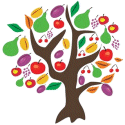
01.31.18 (Shevat 15, 5778) Yeshua said that as a tree is to its fruit, so is a person's heart is to his speech. Our words arise from an underlying source and root: "I tell you, on the Day of Judgment people will give account for every careless word (πᾶν ῥῆμα ἀργὸν) they speak, for by your words you will be justified, and by your words you will be condemned" (Matt. 12:36-37). First note that the phrase translated "every careless word" can be understood as "every 'workless' word," that is, every vain or empty word spoken, every broken promise, every insincere utterance, and so on. Second, note that there is a relationship between naming and being in Hebrew thought, and indeed the Hebrew word davar (דּבר), usually translated as "word," can also mean "thing." This suggests that our words define reality - not in an absolute sense, of course - but in terms of our perspective and attitude, and for that we are held responsible before the LORD. Since our words express our thoughts, Yeshua wants us to make up our minds: "Either make the tree good and its fruit good, or make the tree bad and its fruit bad, for the tree is known by its fruit" (Matt. 12:33).
Listen to the words of your heart and understand that they are devarim, "things" that are defining the course of your life right now. Our thoughts and words "exhale" the breath of God that was given to each of us. In a very real sense they serve as "prayers" we are constantly offering.... And may it please our gracious and long-suffering LORD to answer the cry of our heart: "Let the words of my mouth and the meditation of my heart be pleasing in your sight, O LORD, my Rock and my Redeemer." Amen.
יִהְיוּ לְרָצוֹן אִמְרֵי־פִי
וְהֶגְיוֹן לִבִּי לְפָנֶיךָ יְהוָה צוּרִי וְגאֲלִי
yi·he·yu · le·ra·tzon · im·rei · fi
ve·heg·yon · lib·bi · le·fa·ne·kha · Adonai · tzu·ri · ve·go·a·li

Let the words of my mouth and the meditation of my heart
be pleasing to You, O LORD, my Rock and my Redeemer.
(Psalm 19:14)

Hebrew Study Card
The First Commandment...
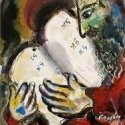
[ The following is related to this week's Torah reading, parashat Yitro... ]
01.31.18 (Shevat 15, 5778) I mentioned the other day that the Hebrew word "mitzvah" (מִצְוָה) is really about connection to God (i.e., the root צוה means to bind or unite). Rabbi Levi said, "When the Holy One spoke to the people of Israel, each one felt personally spoken to by God, and thus it says in the singular, 'I am the Eternal One, your God.'" Indeed the first commandment at Sinai was to accept the reality of our personal deliverance by the LORD: "I am the LORD your God (אָנכִי יְהוָה אֱלהֶיךָ), who brought you (singular) out of the land of Egypt, out of the house of slavery" (Exod. 20:2). In fact, the Hebrew text of the Torah reveals that God used the second person singular (not plural) for all the verbs throughout the Ten Commandments: "you (singular) shall have no other gods beside me"; "you (singular) shall not take the Name of the LORD your God in vain," and so on. The very first commandment, however, is the starting point for all that follows. Until you are personally willing to accept the LORD as your God and to connect with Him as your own Deliverer and King, the rest of the commandments are not likely to be heeded.
אָנכִי יְהוָה אֱלהֶיךָ
אֲשֶׁר הוֹצֵאתִיךָ מֵאֶרֶץ מִצְרַיִם
מִבֵּית עֲבָדִים
a·no·khi · Adonai · E·lo·he·kha
a·sher · ho·tze·ti·kha · me·e·retz · mitz·ra·yim
mi·bet · a·va·dim

"I am the LORD your God,
who brought you out of the land of Egypt,
out of the house of slavery"
(Exod. 20:2)
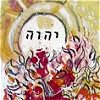
Hebrew Study Card
It is noteworthy that God referred to himself using the phrase asher hotzetikha me'eretz mitzrayim ("who delivered you from the land of Egypt") instead of identifying Himself as the Creator of heaven and earth (Gen. 1:1). This is because the purpose of creation is to demonstrate God's redemptive love and to be known as our Savior and Redeemer, just as Yeshua is the "Lamb slain from the foundation of the world" (Rev. 13:8; 1 Pet. 1:18-20; Eph. 1:4; 2 Tim. 1:9). "All things were created by Him (i.e., Yeshua), and for Him" and in Him all things consist (συνεστηκεν, lit. "stick together") (Col. 1:16-17). Creation therefore begins and ends with the redemptive love of God as manifested in the Person of Yeshua our Mashiach, the great Lamb of God... He is the Center of Creation - the Aleph and Tav - the Beginning and the End (Isa. 44:6; Rev. 1:17). All the world was created for the Messiah: "For from him and through him and to him are all things. To him be glory forever. Amen" (Rom. 11:36).
New Year for Trees...

[ Tonight at sundown is "Tu B'Shevat" or the 15th of the month of Shevat (שְׁבָט), which marks the traditional date celebrating the "New Year" for Trees... ]
01.30.18 (Shevat 14, 5778) The Bible begins and ends with the great Tree of Life -- first in the orchard of Eden, and later in the midst of the paradise of heaven. "The Tree of Life (i.e., etz ha' chayim: עֵץ הַחַיִּים) was in the midst of the garden..." (Gen. 2:9); "Then the angel showed me the river of the water of life, bright as crystal, flowing from the throne of God and of the Lamb through the middle of the street of the city; also, on either side of the river, the Tree of Life (etz ha-chayim) with its twelve kinds of fruit, yielding its fruit each month" (Rev. 22:1-2). Notice that the "twelve fruits" (καρποὺς δώδεκα) from the Tree of Life are directly linked to the "twelve months" of the Jewish year (κατὰ μῆνα ἕκαστον ἀποδιδοῦν τὸν καρπὸν αὐτοῦ: "each month rendering its fruit"). Twelve months; twelve fruits.... This teaches us that the sequence of the holidays (moedim) was intended to teach us revelation about God. That is why God created the Sun and the Moon for signs and for "appointed times" (Gen. 1:14), as it also says: "He made the moon to mark the appointed times (לְמוֹעֲדִים); the sun knows its time for setting" (Psalm 104:19).
The Scriptures state twice: "Take root downward and bear fruit upward" (2 Kings 19:30; Isa. 37:31). As Yeshua said, "unless a grain of wheat falls to the ground and dies, it abides alone; but if it dies, it brings forth much fruit (John 12:24). We pray we might surrender ourselves to the Lord fully, being immersed in His passion, "bearing fruit in every good work (ἐν παντὶ ἔργῳ ἀγαθῷ καρποφοροῦντες) and growing in da'at HaShem (דַעַת אֱלהִים) - the knowledge of God" (Col. 1:10). The "fruit of the righteous is a Tree of Life" lit., etz chayim (עֵץ חַיִּים), literally, "the Tree of lives" (Prov. 11:30). It is the fruit of Yeshua, the Tzaddik of God, the Righteous One, who bears fruits of healing in the lives of those who turn to Him in trust...
The "Tree of Life" (i.e., etz ha'chayim: עֵץ הַחַיִּים) is mentioned ten times in Scripture, corresponding to the "ten words of God" (i.e., the Ten Commandments). In the Torah it first appears in the center of the paradise of Eden (Gen. 2:9; 3:22-4), but it is soon lost to humanity because of Adam's transgression. In the book of Revelation, it reappears in the center of the Paradise of God (Rev. 2:7, 22:2), resurrected on account of the faithful obedience of Yeshua as mankind's "last Adam" (1 Cor. 15:45). Those who have washed their robes by means of His righteousness are given access to this Tree in the heavenly Jerusalem (Rev. 22:14). The paradise lost by Adam has been regained by the greater ben-adam, the Son of Man, Yeshua the Messiah, the Savior of the children of men...
 |
Ten Matters of Heart...

01.30.18 (Shevat 14, 5778) As I discuss in the Shavuah Tov audio for parshat Yitro, the Ten Commandments of Torah (עֲשֶׂרֶת הַדִבְּרוֹת) may be summarized this way: 1) "I AM your only deliverer, the One who loves and chooses you; 2) love me exclusively; 3) regard my love as sacred; 4) rest in me; 5) honor your life and its history. Do no harm to others: 6) forsake anger, 7) abandon lust, 8) renounce greed, and 9) abhor lying, and 10) refuse envy. Know that you belong to me and that you are accepted. Love others as you are also loved..."
The "heart of the law" is the Torah of love, just as the "law of love" is the Torah of the Gospel (John 15:12). "Teach me the whole Torah, a heathen said, while I stand on one foot. Shammai cursed and drove the man away. He went to Hillel. Hillel said, What is hateful to you, do not do to anyone else: that is the whole Torah. The rest will follow – go now and learn it." As the Apostle Paul taught: "For the whole law is fulfilled in one word: Ve'ahavta: "You shall love your neighbor as yourself" (Gal. 5:14). Love does no wrong to a neighbor; therefore love is the fulfilling of the law" (Rom. 13:10).
Note: "Now the goal of the commandment is love (τὸ δὲ τέλος τῆς παραγγελίας ἐστὶν ἀγάπη) from a pure heart and a good conscience and a sincere faith, though some people, having strayed away, have turned instead to vain talk, desiring to be teachers of the Torah but without understanding either what they are saying or the things about which they make confident assertions" (1 Tim. 1:5-7). If your understanding of Torah and the meaning of the Ten Commandments (עֲשֶׂרֶת הַדִבְּרוֹת) doesn't lead you directly to God's love, you have made a seriously wrong turn... For more on this subject, click here.
The Divine "Law School"...

01.30.18 (Shevat 14, 5778) The sages said that "the laws of the Torah were given that people should live by them and not that they should die by them" (Lev. 18:5). This is true, though it is not true without qualification. Legalists and spiritual perfectionists are constantly depressed because they never feel like they've done enough or have fulfilled their duty. They feel inadequate, and this leads to severity and hardness of heart. However, such spiritual failure serves as a "halfway house" to the truth, since the law was intended to reveal our sinful condition and to lead us to a state of brokenness and surrender (Gal. 3:24-25). As is is written, "For from the law comes the knowledge of sin" (διὰ γὰρ νόμου ἐπίγνωσις ἁμαρτίας), but now the righteousness of God (צִדְקַת אֱלהִים) apart from the law is manifested, being witnessed by the law and the prophets" (Rom. 3:20-21, Gal. 3:19). The phrase "apart from the law" means from an entirely different sphere from that which says, "do this and live." It is the "righteousness" (δικαιοσύνη) that comes from God, not from man. The law by itself, though holy, just, and good, is powerless to give life, though it indeed reveals our need for life that graciously is given apart from the law. Love, then, is the miracle of God that alone gives us life and power us to keep the truth of the law -- its inner meaning -- and that love is found in God the truth of Yeshua the Messiah...
Awaken to the Spirit...

01.30.18 (Shevat 14, 5778) "You do not know what spirit you are of..." (Luke 9:55). Yeshua's words imply that each of us has the responsibility to know ourselves (γνῶθι σεαυτόν), and to learn to endure (and overcome) the natural motives and focus of our hearts. We discover the truth of our spiritual condition in the midst of our daily frustrations, as we experience conflict, opposition, and the inner groan that arises from pressure and disappointment. Spiritual growth means learning to transcend our negative reactions, to stop cursing our conflicts, and to awaken to the blessings that surround and pervade our way. God's grace enables us to open our eyes so that we may "choose life and live" (Deut. 30:19). Our daily struggle with sin reveals the contradiction between the ideals of our faith and the spontaneous reactions of our heart.... We live in between the "is" and the "ought," the real and the ideal (though often we deny one or the other). The impulse to despair, to be angry, to complain and curse our experience can be transformed into an opportunity to pray, to ask God for help, and to refocus on what is real. This is the "hidden blessing" (ברכת סוד) of our troubles. When we learn to surrender to God's Presence, we can breathe in his peace and love, despite the grief we encounter over ourselves and others. When we come to the light, and do not deny the truth about our condition, we can honestly ask the LORD for healing (Heb. 4:16). When we seek for the good - and even bless the struggle - we express our trust that God will use our sorrow to help us grow and to bring beauty from our ashes (2 Cor. 7:10). Hashivenu: "Turn us back to you, O LORD, and we shall be turned..."
הֲשִׁיבֵנוּ יְהוָה אֵלֶיךָ וְנָשׁוּבָה
חַדֵּשׁ יָמֵינוּ כְּקֶדֶם
ha·shee·vei'·noo · Adonai · e·ley'·kha · ve·na·shoo'·vah
cha·desh · ya·mey'·noo · ke·ke'·dem

"Turn us back to you, O LORD, and we shall be turned;
renew our days as of old."
(Lam. 5:21)
Hebrew Study Card

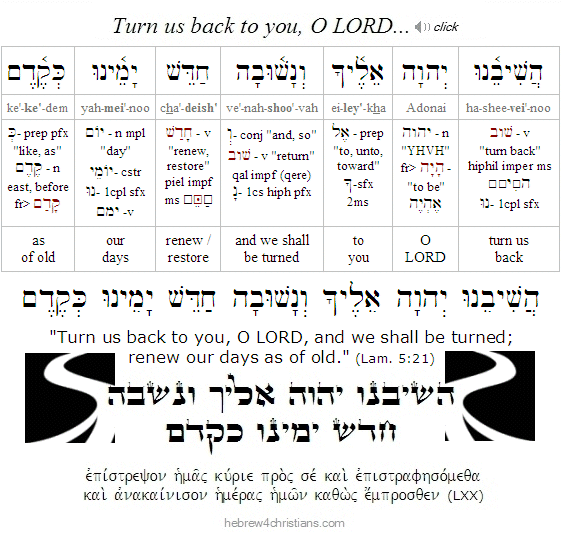
Again, our daily struggle with sin reveals the contradiction between the ideals of our faith and the spontaneous reactions of our heart. If we are able to find the courage, our failures and brokenness may be used by God to distill the intentions of the heart by helping us to be more honest with ourselves. We begin to realize that we are more vulnerable than at first we thought; that our faith is not as strong as we imagined, and that our motives are often mixed and unconscious. Illusions are striped away; idols crumble; deeper levels of selfishness are uncovered; the gap between our words and our deeds is exposed... It is one thing, after all, to intellectually think about faith or to idealize spirituality, but it is quite another to walk out faith in darkness. Yet it is only there, in the rawness of heart, that we discover what we really believe and how our faith makes traction with reality... May God help each of us to walk in the light of his love and truth. Amen.
First and last Word...

[ The following is related to this week's Torah reading, parashat Yitro... ]
01.30.18 (Shevat 14, 5778) The traditional commentators often divide the Ten Commandments as those primarily between man and God (לָמָקוֹם) and those between man and his neighbor (לְחֲבֵרוֹ), but these are ultimately one and the same. To see this, note that the Commandments begin with the word anochi ("I AM") and end with le're'kha ("to/for your neighbor"). Joining these together says "I am your neighbor," indicating that the LORD Himself is found in your neighbor. The first and last word of the law of Moses, then, is simply "I AM your neighbor." Every social transgression is therefore a transgression against God, and vice-versa. As our Scriptures teach, "If anyone says, "I love God," and hates his brother, he is a liar," and "love fulfills the law" (1 John 4:20; Rom. 13:8). When we love our neighbor as ourselves (אָהַבְתָּ לְרֵעֲךָ כָּמוֹךָ), we are in effect showing love for the LORD.
Destiny and Creation...

01.30.18 (Shevat 14, 5778) Our faith understands creation to be "teleological," which means that it is "going someplace" and that there is an overarching order and purpose to our existence. Your life is not adrift in a random universe that is destined to ultimately fade away but is grounded in the Divine Mind and Will that personally supervises and pervades all things. A lack of emunah (faith) has been likened to a passenger flying on an airplane who doesn't believe there is a pilot in the cockpit... Faith in the LORD believes that a single supreme, all-knowing, all-powerful and benevolent spiritual Power directs all things, and that God is the beginning, middle, and end of all conscious meaning, truth, and substance, as it is written: כִּי הַכּל מִיָּדוֹ הַכּל בּוֹ וְהַכּל לוֹ הוּא, "For from him and through him and to him are all things" (Rom. 11:36). A life of faith in the one true God imparts the blessing of shalom (inner peace) and assures the heart that all shall be made well by the love of God. Everything God does is for the very best, and there are no exceptions to this truth (Rom. 8:28).
The faith that everything God does is for the best is not some smug rationalization that denies or minimizes the suffering we encounter in life, but is an affirmation that there is an unseen (though knowable) good at work that ultimately will heal us and comfort our shattered hearts... The phrase gam zu l'tovah (גַּם זוּ לְטוֹבָה) is an affirmation that "this too is for good," and that this "this" includes the various challenges and struggles we face during our days of sojourn here on this earth. Every "down" in life prepares us for an "up," with the ultimate end being beatitude and everlasting joy. Challenges draw us closer to God, igniting our hearts to cry out for his Presence and blessing. Even death itself is a passageway to eternal life (Psalm 16:10; 49:15; 1 Cor. 15:12-58). בַּעֲצָתְךָ תַנְחֵנִי וְאַחַר כָּבוֹד תִּקָּחֵנִי - "You guide me with your counsel, and afterward you will receive me to glory" (Psalm 73:24). By faith "we know that if the 'tent' that is our earthly home is destroyed, we have a building from God, a house not made with hands, eternal in the heavens" (2 Cor. 5:1). God is our good Shepherd who leads us along the byways of the desert of this world (Psalm 23:4). In God's presence is total and absolute joy; at his right hand there are pleasures forever (Psalm 16:11). As it is written in the sacred testimony of the prophets: "No eye has seen, nor ear heard, nor the heart of man imagined, what God has prepared for those who love him" (Isa. 64:4; 1 Cor. 2:9). The LORD "will wipe away every tear from our eyes, and death shall be no more, neither shall there be mourning, nor crying, nor pain anymore, for the former things have passed away" (Rev. 21:4, Isa. 25:8). God foresees your way and prepares a place for you (John 14:1-3); he has ready a precious white stone with your "hidden" name inscribed (Rev. 2:17); the table is being set and your place has been reserved..
So be encouraged, friend. You do not need to struggle alone – bitter and afraid that you might be swallowed up in your infirmities… God knows the groan of your struggle and invites you to find solace and strength in Him. "It is enough to open your heart the smallest amount - even the width of a pin - to repent, so that you feel a stab within your heart, like a piercing sting in living tissue, not like a needle thrust into dead flesh" (Menachem Mendel of Kotzk). Bittachon (בִּטָּחוֹן) is a Hebrew word that means trust in God... Those who have bittachon do not worry about the future because their faith fully permeates their heart and mind, enabling them to surrender their cares and burdens to the Lord.
These are the Words...

[ The following is related to this week's Torah reading, Parashat Yitro... ]
01.29.18 (Shevat 13, 5778) From our Torah portion this week we read: "You shall be treasured and set apart; you shall be a child of the King; you shall be one who helps others draw near to God... these are the words (אֵלֶּה הַדְּבָרִים) that you shall speak" (Exod. 19:5-6). These are the words of love: "And you shall love the LORD your God with all your heart, with all your soul, with all your substance. Set these words (הַדְּבָרִים הָאֵלֶּה), which I command you this day, upon your heart" (Deut. 6:5-6). We store up these words so that, in a holy moment, they are quickened within us and we are able to hear the Voice of the LORD speaking from the midst of the fire that burns within our hearts. As Simone Weil said, "love is revelation, and revelation comes only with love."
The Mitzvah Connection...

01.29.18 (Shevat 13, 5778) The Hebrew word "mitzvah" (מִצְוָה) is often translated as "commandment," though its basic idea is about connection to God (i.e., the root צוה means to bind or unite). Being connected with the Almighty means talking with him, relating to him as your heavenly Father, and trusting that he esteems you as his beloved child. Whatever else you may think about the commandments of God, this idea of a love connection is foundational and essential. The very first of the Ten Commandments is anochi Adonai Elohekha, "I am the Lord your God," which invites you to open your heart to receive the touch of the Spirit of God. There is no love like that of the Lord, but you can't feel that love if you don't speak to Him, pouring out your heart and clinging to the truth of his love for you....
בִּטְחוּ בוֹ בְכָל־עֵת עָם
שִׁפְכוּ־לְפָנָיו לְבַבְכֶם
אֱלהִים מַחֲסֶה־לָּנוּ סֶלָה
bit·chu · vo · ve·khol-et · am
shif·khu · le·fa·nav · le·vav·khem
E·lo·him · ma·cha·seh-la·nu · se·lah

"Trust in him at all times, O people;
pour out your heart before him;
God is a refuge for us. Selah."
(Psalm 62:8)

Pouring out your heart to God in an honest, transparent, and earnest way is sometimes called hitbodedut (הִתְבּוֹדְדוּת). After we "talk our hearts out" before the Lord, in our emptiness we can begin to truly listen, as it says, "In returning and rest you shall be saved; in quietness and in trust shall be your strength" (Isa. 30:15). Only after we sigh deeply and surrender are we receptive to the voice of the Spirit's whisper. "Blessed are all those who wait for Him" (Isa. 30:18). We wait, we abide, even when God takes his time or does not immediately intervene. We do not lose heart, for we find strength when we trust in God's love... The Light of the world still shines: Yeshua, be my inner word, my heart, and my groaning for life today, and forevermore, amen.
Since the essence of Torah is connection to God, the greatest blessing is to be filled with a steadfast desire to draw close to him, to experience hunger and thirst (visceral yearning) for God's presence and touch. Holy desire – expressed in the yearning of heartfelt prayer – is therefore a state of true blessedness, and the more desperate our need for God the more blessed we are. It is our desire, our holy need, that creates a bond between our soul and its Creator, and that is the deeper meaning of mitzvah... "Blessed are those who hunger and thirst for righteousness, for they shall be satisfied" (Matt. 5:6).
The "Problem" of Obedience...

01.29.18 (Shevat 13, 5778) The very first duty of the heart is to surrender to God's love for your soul. Surrender of the heart is deeper than outward obedience, since it is possible to obey God for the wrong reasons. Our motivation must be grounded in God's love first of all. This is what it means to "die to yourself" or to be "crucified" with Messiah: you let go; you relinquish control; you trust God to sustain you, even in your weakest moment. That is the nature of trusting in God's love for you.
Some people seem to think that the way of salvation depends on our obedience. But those who say things like we must "trust and obey," or "believe and repent" either do not understand the radical nature of what it means to truly trust God, or they confuse the idea of surrender with obedience. After all, if we seriously think that we are delivered by our obedience, the focus will be on our will, our "works," our performance, and our religious life will become self-centered, driven, and insecure. Moreover, this willful approach assumes we can obey, that we are capable of attaining some kind of spiritual perfection, and so on. No one denies the requirement to obey God, of course, but the question centers on the means to do just that. What is the source of our power to obey God? To remedy matters of self-deception, it is helpful to review the Sermon on the Mount, where Yeshua interprets the Ten Commandments to show us what really lurks within the unregenerated heart.
For more on this topic, see "The Problem of Obedience: Further thoughts on Yitro."
Parashat Yitro - יתרו

01.28.18 (Shevat 12, 5778) In our Torah this for this week (i.e., Yitro), we read how the Israelites reached the region of Mount Sinai where Moses told them that if they were willing to be God's treasured people (עַם סְגֻלָּה) they would become a "kingdom of priests and a holy nation." The people accepted the invitation and proclaimed, "All that God has spoken, we shall do" (Exod. 19:3-8). A few days later - on the 49th day after the Exodus (i.e., Sivan 6) - the LORD descended amidst thunder, lightning, billowing smoke, fire, and the blast of the heavenly shofar, proclaiming "I AM" and the Ten Commandments (עֲשֶׂרֶת הַדִּבְּרוֹת). Because this vision was so overwhelming, the terrified Israelites began beseeching Moses to be their mediator lest they die before the Presence of God. The portion ends as "the people stood far off, while Moses (alone) drew near to the thick darkness where God was" (Exod. 20:21).
You can download the Shabbat Table Talk for this portion below. I've also recorded an audio Summary for parashat Yitro with some discussion about this important Torah reading. Shavuah tov and may every blessing be yours in our beloved Messiah, friends.
Testing and Endurance...

01.26.18 (Shevat 10, 5778) When Paul wrote, "in everything give thanks" (1 Thess. 5:18), he surely foresaw the prospect of suffering. Indeed, it is through "much tribulation" we enter the kingdom of God (Acts 14:22). We do not ask God to insulate us from all troubles, but rather to be given courage to carry on despite whatever tests he permits in our lives. Hence one of our standard blessings is: בָּרוּךְ אַתָּה יהוה הַנּוֹתֵּן לַיָּעֵף כּחַ / barukh attah Adonai ha'noten lai'ya'ef koach: "Blessed are You, LORD, who gives strength to the weak." The Lord never "breaks" before offering His blessing (Mark 6:41), and personal brokenness is the means of instilling His character within us (Gal. 2:20). Indeed in our Torah we read: "I am the LORD your Healer" (אֲנִי יְהוָה רפְאֶךָ; Exod. 15:26). The sages comment that just as someone who wishes to repair an object will need to take it apart, so with God. When we seem to be broken in pieces we cry out for deliverance and healing, but inwardly we are being conformed to the deeper image of Messiah. Like Jacob, we wrestle with God to know our wound as well as our healing. As it is written in our Scriptures: "So we do not lose heart. Though our outer self is wasting away (διαφθείρεται), our inner self is being renewed day by day. For this light momentary affliction (θλῖψις) is preparing for us an eternal weight of glory beyond all comparison, as we look not to the things that are seen but to the things that are unseen. For the things that are seen are transient, but the things that are unseen are eternal" (2 Cor. 4:16-19). As our Scriptures also affirm, God is "the Father of Mercies and God of all comfort" (אַב הָרַחֲמִים וֵאלהֵי כָּל־נֶחָמָה). The Lord "comforts us" (literally, "calls us to His side," παρακαλέω) in our afflictions so that we may be able to comfort those who are afflicted with the same comfort with which we ourselves are comforted by God (2 Cor. 1:3-4).
Exile and Unbelief...

01.26.18 (Shevat 10, 5778) It has been said that it was easier for the LORD to get Israel out of exile than it was for Him to get the exile out of Israel... And so it is for our spiritual journey as well. Therefore we are admonished by the Spirit: "Take care, brothers, lest there be in any of you an evil, unbelieving heart, leading you to fall away from the living God. But exhort one another every day, as long as it is called "today," that none of you may be hardened by the deceitfulness of sin" (Heb. 3:13-14). This is the hour, the day of salvation: "today, if you hear His voice, do not harden your hearts..." Amen. Shabbat Shalom!
Eye of Little Faith...

01.26.18 (Shevat 10, 5778) When the people found no water at Rephidim they faithlessly questioned whether the Lord was truly with them (Exod. 17:1-7). In their fear they turned on Moses and said, "Why did you bring us up out of Egypt, to kill us and our children and our livestock with thirst?" (Exod. 17:3). Moses then appealed to the LORD for help who instructed him to strike a rock with his staff to bring forth water, but the place was thereafter called "Massah and Meribah" (מַסָּה וּמְרִיבָה), "temptation and strife," because the people grieved God's heart by asking "is the LORD among us or not?" (Exod. 17:7). The sages connect the subsequent attack of Amalek (Exod. 17:8-16) with the people's faithlessness here. Because they doubted God's presence, a "test and conflict" would force the issue of their trust in Him. The Israelites would not be able to overcome the attackers unless Moses' arms were raised in intercession, illustrating their need for God's intervention and deliverance. Just as the Exodus recurs l'dor va'dor (לדור ודור), "from generation to generation," so too does the war with Amalek; just as we remember God's deliverance "kol yemei chayekha," that is, every day of our lives (Deut. 16:3), so we need God's help in our daily struggle against evil (Exod 17:16; Deut. 25:7,19, Matt. 6:13). We receive God's Victory by faith (1 John 5:4).
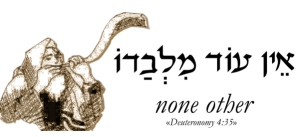 |
Bitterness for Shalom...

01.26.18 (Shevat 10, 5778) From our Torah portion this week (i.e., parashat Beshalach) we read that when the Israelites came to Marah, "they could not drink the water because it was bitter" (Exod. 15:23). Note that the Hebrew text allows us to read that it was the Israelites themselves who were bitter – ki marim hem (כִּי מָרִים הֵם) – "for they (i.e., the Israelites) were bitter," and their bitterness made the water seem so as well.... After the people complained, God showed Moses a tree and threw it into the water, making it drinkable. Interestingly the Hebrew text literally reads, "the LORD taught him a tree" (וַיּוֹרֵהוּ יְהוָה עֵץ), suggesting elon moreh (אֵלוֹן מוֹרֶה), the "teaching tree of Abraham" (Gen. 12:6). The sages say this tree symbolized Torah, the tree of life (etz chaim), which brings happiness to those who take hold of it (Prov. 3:18), though we see Yeshua, the fallen tree that yields mayim chayim - living water - to revive the hearts of mankind...
הִנֵּה לְשָׁלוֹם מַר־לִי מָר
וְאַתָּה חָשַׁקְתָּ נַפְשִׁי מִשַּׁחַת בְּלִי
כִּי הִשְׁלַכְתָּ אַחֲרֵי גֵוְךָ כָּל־חֲטָאָי
hi·nei · le·sha·lom · mar · li · mar
ve·at·tah · cha·shak·ta · naf·shi · mi·sha·chat · be·li
ki · hish·lakh·ta · a·cha·rei · gev·kha · kol · cha·ta·ai

"Behold, it was for my healing that I had great bitterness;
but You in love have delivered my life from the pit of destruction,
for you have cast all my sins behind your back."
(Isa. 38:17)

In this verse note that the term "pit of destruction" (מִשַּׁחַת בְּלִי) might better be understood as the "pit of wearing out," that is, the pit of nothingness, consumption, vanity, or worthlessness (i.e., belial: בְּלִיַּעַל). The idea is that the LORD loves us "from the pit of nothingness." The word "loved" used here (i.e., chashak: חָשַׁק) means to be attached in devotion or affection, to embrace in kindness... God's great love is like that – it descends into the pit of shame and draws us out from it, just as Yeshua went down to the pit for that purpose – to deliver those trapped in throes of death (Psalm 88:4-6; Zech. 9:11, 12; Heb. 13:20, 2 Cor. 5:12, etc.).
Confession and Hope...
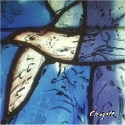
01.26.18 (Shevat 10, 5778) "Faith is the foundation (i.e., ὑπόστασις: the "substance," reality, underlying essence, etc.) of hope, the conviction of the unseen... Without faith it is impossible to please God, for whoever would draw near must believe that God exists and rewards (μισθαποδότης) those who seek him" (Heb. 11:1,6). Note that God is pleased when we seek his presence, that is, when we when we look past the ephemera and ambiguity of the phenomenal world for the truth about spiritual reality (2 Cor. 4:18). For our part, faith resolves to confession (ὁμολογέω), that is, aligning our perspective and focus to agree with the revelation and message of divine truth and verballly declaring our conviction. We must say that we believe, and affirm it with all our heart (Rom. 10:9). As it says, "I will make Your faithfulness known with my mouth" (Psalm 89:2). When you encounter tribulation, or experience some crisis of faith, reaffirm aloud: "I believe in God's promise..." Physically expressing your faith is itself an act of faith, and this encourages your soul to trust in God's healing reward even in the present struggle or darkness...
Our Daily Bread...

01.25.18 (Shevat 9, 5778) "I am about to rain bread from heaven (לֶחֶם מִן־הַשָּׁמָיִם) for you, and the people shall go out and gather a day's portion every day, that I may test them, whether they will walk in my Torah or not" (Exod. 16:4). Note that though God graciously provided the miracle of manna, the people were required to receive it for themselves. Note further that a portion was given for just that day, and storing it up for later use (except for the Sabbath) resulted in rottenness and decay (Exod. 16:20). By being required to collect their daily bread the people learned that God's blessing and their efforts worked together. Our sustenance is a gift from heaven, though we must reach out to take hold of it...
"Tomorrow is a day of solemn rest, a holy Sabbath to the LORD" (Exod. 16:23). Here is the first mention of the obligation to observe the Sabbath, which is introduced in connection with the requirement for the people to collect a double portion of manna on Friday for the following day. The sages here note that the Sabbath and the manna both underscore our complete dependency on God as the source of our sustenance.
"I will test them to see whether they will walk in my Torah or not" (Exod. 16:4). This is the test to see whether we will trust God to meet our needs... After all, it is one thing to believe God can help you and yet another to trust that it is so. Peace comes when belief and trust are unified within the heart - when the one who firmly believes completely trusts as well. God gave bread from heaven to test us: "And he humbled you and let you hunger and fed you with manna, which you did not know, nor did your fathers know, that he might make you know that man does not live by bread alone, but man lives by every word that comes from the mouth of the LORD" (Deut. 8:3). God humbles us, which is really the greatest of blessings, since we then learn to rely on God's strength and love to meet all our needs.
Conduit of Blessing...

[ The following is related to this week's Torah reading, parashat Beshalach... ]
01.25.18 (Shevat 9, 5778) "The LORD said to Moses, "Why do you cry out to me? Tell the people of Israel to go forward" (Exod. 14:15). There are times when enough prayer has been offered and all that's left is to act. "Tell the people to go forward!" Note well that only after the people began walking in faith was Moses instructed to lift up his staff to divide the waters of the sea so they could pass through...
God then said: "Lift up your staff, and stretch out your hand over the sea and divide it, that the people of Israel may go through the sea on dry ground" (Exod. 14:16). The midrash says that at first nothing happened but then Nachshon stepped forward into the waters and the east wind began to blow. The sages comment that though the splitting of the sea was a miracle, there had to be a step of faith to "ignite" the miracle and give it life. This is because events that occur without our hearts do not truly affect us. Asking for the miracle is not sufficient: we must believe and step out to become a conduit of the heavenly blessing. Stepping out "incarnates" the Spirit to work wonders. ὥσπερ γὰρ τὸ σῶμα χωρὶς πνεύματος νεκρόν ἐστιν, οὕτως καὶ ἡ πίστις χωρὶς ἔργων νεκρά ἐστιν: "For as the body apart from the spirit is dead, so also faith apart from works is dead" (James 2:26).
Our Spiritual Warfare...

01.25.18 (Shevat 9, 5778) In our Torah for this week (Beshalach) we read how "Amalek" attacked the Israelites after they had miraculously crossed over the sea into a new life of freedom (Exod. 17:8). Spiritually speaking the Amalekites aligned themselves with the wicked Pharaoh of Egypt and therefore they sought to continue the war against God's people. Apparently the Amalekite clan in Canaan was founded by a grandson of Esau (Gen. 36:12,16), though Amalek is also listed as the "first among the nations," a man who even predated the time of Abraham (Num. 24:20, Gen. 14:7). In Augustine's terms, Amalek represents the "City of the World," whereas Israel represents the "City of God."
In Jewish tradition, Amalek represents pure evil, or those who have "given themselves over" to Sitra Achra, the side of impurity. Indeed the name Amalek (עֲמָלֵק) begins with the letter Ayin (symbolizing the eye) and equals 240 in gematria -- the same value for safek (סָפֵק), meaning "doubt," and for rahm (רָם), meaning "haughty." Amalek therefore represents "the evil eye of doubt," or even "the severed eye" (i.e., when you remove Ayin from "Amalek," you are left with malak (מָלָק), a verb that means "to chop off" or to sever). Understood in this way, Amalek represents spiritual blindness acting arrogantly in the world, and therefore the LORD vowed perpetual warfare against Amalek: "The Hand is on God's throne. God shall be at war with Amalek for all generations" (Exod. 17:16).
The Torah reveals that we must "go out and fight" Amalek, which is a call to ongoing spiritual warfare in our lives (Deut. 25:17-19). When Moses raised his hands in battle against the Amalekites, the Israelites prevailed, but if he lowered them, they suffered defeat (Exod. 17:11). Eventually Moses grew weary and needed Aaron and Hur to help him hold his arms steady to ensure victory (Exod. 17:12). Note that the Hebrew word translated "steady" is emunah (אֱמוּנָה), the word for faith... It was Moses' steady faith in God's power that gave Israel the victory over the powers of darkness, just as we lift up our faith in God's power demonstrated at the cross gives us the victory over Satan and his schemes.
For a bit more about what Amalek represents, see the article, "Warfare with Amalek."
Good Taste of Gratitude...

[ The following is related to this week's Torah reading, parashat Beshalach... ]
01.25.18 (Shevat 9, 5778) The LORD said to Moses, "'Look I am going to rain down bread from heaven for you (לֶחֶם מִן־הַשָּׁמָיִם). The people will go out and gather a portion for that day so that I might test whether they will walk in my Torah (תּוֹרָה) or not" (Exod. 16:4). This miraculous bread was called manna (מָן) because when the people first saw it they asked one other, "mann hu" (מָן הוּא), "what is it?" Although the Torah describes its taste as like "honey cakes" (Exod. 16:31), the midrash says that its taste was a function of a person's sense of gratitude. For those who were thankful for God's care, manna tasted delicious (like a good cookie?), but to those who murmured, it tasted bland and unsatisfying (like stale matzah?). "According to your faith, be it done unto you" (Matt. 9:29).
טַעֲמוּ וּרְאוּ כִּי־טוֹב יְהוָה
אַשְׁרֵי הַגֶּבֶר יֶחֱסֶה־בּוֹ
ta·a·mu · ur·u · ki · tov · Adonai
ash·rei · ha·ge·ver · ye·che·seh · bo

"Oh, taste and see that the LORD is good!
Happy is the man who takes refuge in Him!"
(Psalm 34:8)

Addictions, cravings, lusts, etc., often arise from refusing to be satisfied, by hungering for more than the blessing of the present moment. "My people have committed two evils: they have forsaken me, the fountain of living waters, and hewed out cisterns for themselves, broken cisterns that can hold no water" (Jer. 2:13). The living waters are always present for us, but we will only find them if we open our hearts to the wonder of God in this moment. We must slow down, savor the moment, and see God's hand in everything around us: "Holy, Holy, Holy is the LORD God of Hosts: The whole earth is filled with His glory" (Isa. 6:3). Opening our spiritual eyes will break the cycle of unthinking habit, of "mindless eating," and so on. Ultimately this is another aspect of shema, or listening to your body, your heart, your soul – and especially listening for God's word spoken to your inward being. We can "break the spell" of continual dissatisfaction, of the power of greed, pride, and so on, when we discover that our constant hunger is really a cry for God and His blessing. Our sense of inner emptiness is an invitation to come to the waters and drink life... May God help us to come!
The Torah of Manna...

[ The following is related to this week's Torah reading, parashat Beshalach... ]
01.24.18 (Shevat 8, 5778) Jewish tradition counts 49 days from the Passover/Exodus to the revelation at Sinai, a seven week period of purification and preparation... During this time the Israelites carried the bones of Joseph (עַצְמוֹת יוֹסֵף) -- the Hebrew word for "bones" (i.e., etzem: עֶצֶם) also refers to his "essence," or the deep conviction Joseph had in God's promise (Gen. 50:25; Heb. 11:1). The journey into the desert is meant to test us – to reveal our strengths and weaknesses. We cross over from the "comfort of slavery" to a barren place that exposes what lurks within our hearts. Yeshua likewise was tempted in the desert and overcame the devil there (Matt. 4:1-11).
The sages say that the verse: "The LORD is my strength and my song (עָזִּי וְזִמְרָת יָהּ), and he has become my salvation (וַיְהִי־לִי לִישׁוּעָה)," refers to two aspects of the life of faith (Exod. 15:2). "My strength and song" refers to the decision we make to desire freedom, truth, righteousness, and so on, whereas "he has become my salvation" refers God's power, our surrender to his love, and our rest in him... It is the balance (and tension) of these two – the willingness to choose and the decision to surrender – that marks the walk in the desert (Phil. 2:13-14). We are both totally responsible yet utterly unable to help ourselves, and stressing either our own freedom or God's sovereignty disrupts the partnership and unity of our journey. It is not a matter of resolute willing nor a matter of passivity: We exercise our strength by trusting God through the darkness and emptiness of the desert.
This balance may be illustrated in the commandment concerning the manna, the miraculous sustenance given to us each day (Exod. 16:1-30). We can only rightfully gather what we can eat for the day, and if we try to gather more, the gift itself will rot... This teaches us to appreciate the present without fear of the future. The "Torah of Manna" (תּוֹרַת הַמָּן) is that we must gather only what the moment requires and no more: "Give us this day our daily bread," as Yeshua taught us to pray. On the sixth day we are able to gather a double portion so that we are free to focus on God's presence and provision on Shabbat.
Notwithstanding the miracle of our redemption and crossing the sea into newness of life, we journey until hunger and thirst arrest our way -- when the bread we carry is exhausted and the water we find tastes bitter. This "bitter water" represents the pain of our past, the reflux of our wounded heart, and our need for "sweet water," the healing waters of life (מַיִם חַיִּים). The mysterious tree that Moses used to sweeten the bitter wates stands for the Tree of Life (עֵץ הַחַיִּים), which itself foreshadows the tree (cross) of our Savior. Bitterness is overcome when touched by this tree. And this tree represents the sacred ground where heaven and earth intersect, the place of atonement, where the heart of God pours our his heart for our eternal good.
Believing and Seeing...
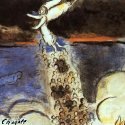
01.24.18 (Shevat 8, 5778) Despite all the miracles and wonders performed on behalf of the Israelites, the people soon seemed to "forget" about their great redemption. Indeed, it was just a few days after the awe-inspiring deliverance from Egypt that the people began to murmur, complain, and "kvetch" (Exod. 16:1-3). Such discontent warns us that miracles are never enough to sustain faith: Seeing isn't believing, but rather the other way around (Rom. 8:24; Heb. 11:1; 2 Cor. 4:18). This explains why groups that emphasis "signs and wonders" often contain so many exhausted people. Miracles are insufficient for faith; people get excited about them while they occur, but they soon forget them and return to a state of desperation and despair. Necessarily the cycle must repeat itself, with ever-increasing claims of the miraculous, in order to keep the movement going. In light of this, it is wise to regard the desire for "signs and wonders" as a counterfeit of the real need to surrender and serve God. After all, to truly love the LORD with all your heart, with all your soul, and with all your strength - now that is a miracle of a greater kind than that of splitting the sea!
For more on this, see "Believing and Seeing: Further Thoughts on Parashat Beshalach."
Slavery and Tolerance...

01.24.18 (Shevat 8, 5778) The Divine promise was "I will take you out from under the burdens of Egypt" (Exod. 6:6), though later the people "romanticized" their captivity and wanted to return there to eat their "free fish" (see Num. 11:5). The sages note the word "burdens" (סִבְלת) can also mean "tolerance," which suggests that the people had tolerated their enslavement and made it "work" for them... And are we not likewise at risk to be enslaved by the sumptuous comforts and amenities offered by this world? Have we not tolerated our own slavery -- our addictions to comfort, pleasures, a life of ease and "free fish"? Are we really ready to leave all that we know behind to experience the glory of Zion? People may profess that they want to know God, that they "hunger and thirst for righteousness" and earnestly desire that the kingdom of heaven be manifest, and yet they can't get away from their favorite television shows, super bowls, political intrigues, pop idols, and other the fads of the day... We must be careful not to become comfortable in our exile – to become "friends of this world" – by losing faith's voice of protest; we must be careful not to be distracted from beholding spiritual reality and the ultimate healing to come. We are away from home, friends! When the hour comes and we hear "gemar ha'tikkun" – the sound of the shofar of Messiah summoning us all to follow him to the Holy Land -- will we be ready to leave everything behind us? (Luke 9:62)
The story is told (by Abraham Twerski in his book, "Rebbes and Chassidim") how Rabbi Nachum of Chernobyl once stayed at an inn, and as was his custom, he arose at midnight to recite lamentations over the destruction of the Temple and the exile of the people... The innkeeper, hearing his wailing, arose to see what the trouble was, and could not understand why the rabbi was sitting on the ground, mourning and praying... Rabbi Nachum explained that we continually mourn the loss of our land and our exile, and that we cry out to God to hasten the ultimate redemption, when Messiah will take us out of exile and lead us back to Jerusalem, our beloved Zion....
The innkeeper asked, "Will we all go to Jerusalem?" "Of course," Rabbi Nachum said. "But what will become of my little farm, my cows and chickens?" the innkeeper asked. "What account are these compared to our being in exile? Nachum replied. "We are repeatedly attacked by the Tartars, they carry out pogroms, killing and pillaging our people! In Jerusalem we will be free of such persecutions!"
The innkeeper was still not satisfied. "I must talk to my wife about this," he said. When he later told his wife what Rabbi Nachum said about the redemption by Mashiach, she said, "And how can we leave our farm and the cows and chickens that we worked so hard to get?" The innkeeper then explained how we would be free of the pogroms and persecutions of the bands of Tartars. The wife thought a bit and then said, "Go tell the rabbi that when Mashiach comes, he should take the Tartars to Jerusalem, and we can live here in peace."
Baptism into Moses...

01.24.18 (Shevat 8, 5778) The Apostle Paul likened the crossing of the sea as a metaphor of baptism (טְבִילָה): "All were baptized into Moses in the cloud and in the sea" (1 Cor. 10:1-2,11). In the New Testament, baptism symbolizes our identification with Yeshua's death, burial, and resurrection (Col. 2:12; Rom. 6:3-5). The Israelites were facing death and were therefore at the "end of themselves." They had no other appeal or hope than God's gracious intervention on their behalf (i.e., salvation). Still, they needed to act and move forward. After they took the step of faith, they could see the Shekhinah Glory lighting up the way of deliverance, though this meant being "buried" within the midst of the sea. Their earlier fear of death was replaced with a song of God's great deliverance (shirat hayam). The other side of the sea represents new life in the Messiah, the life that comes from above, by the power and agency of the Holy Spirit... The Israelites died to their old life, were symbolically buried in the waters, but arose to new freedom by the grace and power of God... Shifting the analogy somewhat, the crossing of the sea represented a sort of "birth canal" into the realm of true freedom as God's redeemed children.
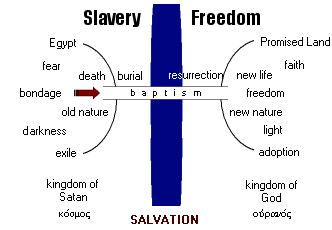 |
Stepping out in Faith...

01.24.18 (Shevat 8, 5778) From our Torah this week (i.e., Beshalach) we read how the children of Israel were trapped before the sea with no way of escape... Moses then cried out to God who told him to march forward -- right into the waters -- as the Pillar of Cloud settled between the people and Pharaoh's advancing army. According to a well-known midrash, when Moses lifted his staff to divide the sea, at first nothing happened. The people waited anxiously at the seashore, wondering what to do. Finally, Nachshon ben Aminadav, a descendant of Judah (Num. 1:7), waded into the water "up to his nose," and then the winds began blowing to divide the waters (Shemot Rabbah). The great miracle of kiryat yam suf (קרית ים סוף)- the splitting of the sea of reeds (the word "suf" means "reed,"see Exod. 2:3) therefore resulted because someone found real courage and took a step of faith: "And the people of Israel went into the midst of the sea on dry ground, the waters being a wall (חוֹמָה) to them on their right hand and on their left" (Exod. 14:22). They marched across the sea all that night (i.e., Nisan 21), under the light of the Shekhinah Glory...
The Talmud says "kasheh le'zavgom ke'kriat yam suf," which means it is more difficult for God to create a marriage than to split the sea. They reason this way because each person needs to take individual action to trust the other. Likewise with God. It is more difficult for God to get us to be in a genuine, trusting relationship with Him than it is for Him to split a sea. Of course the problem is not with God, who is the perfect "husband," but with our adulterous inner nature. It took the LORD a year to deliver Israel from Egypt, but it took Him 40 years to teach Israel to trust in His promises of love. God always awaits our teshuvah - our "answer" - to His invitation before He will reveal more to us. As Yeshua once said to his followers, "I still have many things to say to you, but you cannot bear them now" (John 16:12). Some things about God can only be known by stepping out in faith and surrendering ourselves to Him.
For more on this subject, see "Stepping out in Faith..."
Heaven's Alphabet...

[ The following is related to this week's Torah reading, parashat Beshalach... ]
01.23.18 (Shevat 7, 5778) A verse from our Torah portion this week (i.e., Beshalach) contains all the letters of the Hebrew alphabet (i.e., aleph (א), bet (בּ), gimmel (ג), etc.). The special verse reads, "This is what the LORD has commanded: 'Gather of it, each one of you, as much as he can eat. You shall each take an omer (עמֶר), according to the number of the persons that each of you has in his tent'" (Exod. 16:16). Since this refers to the manna the Israelites were to collect for their daily bread, and this verse contains all the letters of the alphabet, we may poetically infer that if we immerse ourselves in the Scriptures, "from Aleph (א) to Tav (ת)," God will provide us with the "daily bread" (לֶחֶם חֻקֵּנוּ) we need, just as He did when the bread from heaven (לֶחֶם מִן־הַשָּׁמָיִם) was miraculously given to feed the Israelites in the desert. Therefore Yeshua, who is the Aleph and Tav, taught us to pray, "Give us this day our daily bread," which surely refers to the spiritual food (i.e., encouragement, hope, life) that we receive from the Word of Life (Deut. 8:3; Matt. 4:4).
Yeshua taught us: "Don't be anxious about tomorrow, for tomorrow has its own troubles. Live one day at a time" (Matt. 6:34). It makes no sense to worry about the future if the LORD is the Good Shepherd who tenderly watches over your way (Psalm 23:1). Every day we are given daily bread, but we must remember that manna could not be stored up without becoming rotten (Exod. 16:20). God's provision is "sufficient unto the day...."
Isn't it amazing how studying the Hebrew text reveals further insights into the Scriptures? And may you rest in the promise: "My God will supply every need of yours - "from A to Z" - according to his riches in glory in Yeshua the Messiah" (Phil. 4:19). He is lechem ha'chaim - the Living Bread from heaven (John 6:51)!
 |
Blessing of Adversity...
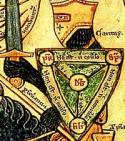
01.23.18 (Shevat 7, 5778) After the people finally left Egypt during the great Passover redemption, God hardened Pharaoh's heart yet again, inspiring him to entrap the Israelites before the shore of the Sea of Reeds. We read in our Torah: "When Pharaoh drew near, the people of Israel lifted up their eyes ... and cried out to the LORD" (Exod. 14:10). The sages comment that by pursuing them Pharaoh inspired the people to pursue the Presence of God, as evidenced by their heartfelt cry for deliverance. Indeed does not spiritual opposition and adversity inspire us to likewise call upon the Divine Presence? Therefore whenever we encounter oppression or hardship we should regard it as an invitation to come closer to God, as it says: "Let us then with confidence draw near to the throne of grace, that we may receive mercy and find grace to help in time of need" (Heb. 4:16). God rewards those who seek him (Heb. 11:6). Therefore "draw near to God and God will draw near to you" (James 4:8). The battle belongs to the Lord but our eyes must look to him for the victory. Remember that it is a blessing to fight the good fight of faith, since adversity shocks us out our lethal indifference and apathy, empowering us to call upon the Lord and overcome in His Name.
קָרְבָה אֶל־נַפְשִׁי גְאָלָהּ
לְמַעַן איְבַי פְּדֵנִי
ka·re·vah · el-naf·shi · ge·a·lah
le·ma·an · oy·vai · pe·dei·ni

"Draw near to my soul, redeem me;
deliver me because of my enemies." (Psalm 69:18)

The Bones of Joseph....

01.23.18 (Shevat 7, 5778) From our Torah portion for this week (i.e., parashat Beshalach) we read: "And Moses took the bones of Joseph with him..." (Exod. 13:19). Note the Hebrew word for "bone" is etzem (עֶצֶם) which can also mean "strength," "substance" or "essence." The journey from exile back to the realm of promise passes through various desolate places and perils. To persevere we must remember the struggle of those who have gone before us, like Joseph, who remained faithful to God even in the midst of tribulation and suffering...
The Call of Freedom...

01.23.18 (Shevat 7, 5778) Regarding the account of the plagues we read the repeated caution issued to Pharaoh: "If you refuse to let my people go, behold, I will bring [a particular plague]" (e.g., Exod. 10:4). Here the sages note that though the LORD warned Pharaoh he would be punished for refusing Moses' request, the door of repentance was still open for him. Even though God had hardened Pharaoh's heart, this did not preclude the possibility of teshuvah, for had the Pharaoh listened to his conscience he could have let the people go and spared himself further disaster. This implies that regardless of how far away we may feel from God we can always turn back to Him. Indeed by grace our own hardness of heart can yield a deeper resolve to draw close to God for deliverance. Therefore refuse to abandon yourself to despair, since God is always willing to help those who sincerely seek him.
פְּנוּ־אֵלַי וְהִוָּשְׁעוּ כָּל־אַפְסֵי־אָרֶץ
כִּי אֲנִי־אֵל וְאֵין עוֹד
pe·nu-e·lai · ve'hiv·va·sh'u · kol-af·sei · a·retz
ki · a·ni-El · ve·ein · od

"Turn to me and be saved, all the ends of the earth!
For I am God, and there is no other." (Isa. 45:22)

The Longer Road Home...

01.22.18 (Shevat 6, 5778) God chose to take the people along the "longer road" to the promised land, just as we find ourselves still awaiting our redemption in the world to come. And like the Israelites, we must be on guard, since when things get difficult, our tendency is to go back to what is familiar, even if it is painful. Thank God we have a Good Shepherd who teaches us and guides us in the way to go: "And though the Lord give you the bread of adversity and the water of affliction, yet your Teacher (מוֹרֶה) will not hide himself anymore, but your eyes shall see your Teacher. Your ears will hear a word behind you, saying: 'This is the way; follow it,' when you turn to the right or to the left" (Isa. 30:20-21).
וְאָזְנֶיךָ תִּשְׁמַעְנָה דָבָר מֵאַחֲרֶיךָ לֵאמר
זֶה הַדֶּרֶךְ לְכוּ בוֹ
כִּי תַאֲמִינוּ וְכִי תַשְׂמְאִילוּ
ve·oz·ne·kha · tish·ma·nah · da·var · me·a·cha·re·kha · le·mor:
zeh · ha·de·rekh · le·khu · vo
ki · ta·a·mi·nu · ve·khi · tas·me·i·lu

"Your ears will hear a word behind you saying:
'This is the way; follow it,'
when you turn to the right or to the left."
(Isa. 30:21)

What a beautiful image of our LORD as our Teacher and Good Shepherd, who guides us in the paths of life and delivers us from "right-hand and left-hand errors." And may God keep us upon the path, free from the seductions of the tempter who wants to distract our souls and lead us into fruitless byways and trouble. May we be given grace to behold His face, even in the midst of adversity or affliction, learning from Him the way to go... Amen.
Refusing Despair...

01.22.18 (Shevat 6, 5778) An old Jewish prayer, uttered somewhat wistfully, begins, "O Lord, I know that You will help us; but will You help us before You will help us?" It's not always easy to wait for God, especially when we are in pain or anxiety, but we must never, ever, give up; we must never forget the promise and reality of our ultimate healing in Jesus. Faith expresses hope in the Reality, Substance, and Being (ὑπόστασις) of the Invisible and is made captive to undying hope (Heb. 11:1). Therefore the Spirit cries out: "Hope to the LORD; be strong and strengthen your heart; and (again) hope to the LORD."
קַוֵּה אֶל־יְהוָה חֲזַק וְיַאֲמֵץ לִבֶּךָ
וְקַוֵּה אֶל־יְהוָה
ka·veih · el · Adonai · cha·zahk · ve·ya·a·meitz · lee·be·kha
ve·ka·veih · el · Adonai

"Hope to the LORD; be strong and let your heart be strengthened;
and (again) hope to the LORD"
(Psalm 27:14)

Download Study Card
In this verse, the imperative verb translated "wait" is the Hebrew word kaveh (קַוֵּה), which might better be rendered as "look for with anticipation!" or "hope!" (the same root appears in the Hebrew word for hope, i.e., tikvah: תִּקְוָה). Therefore hope in the Lord and "chazak!" - be strong! (the Septuagint translates chazak as "andridzou" (ἀνδρίζου - act like a man!). Note that the verb ve'yametz is a causal active stem (i.e., Hiphal) in the "jussive mood," which means it is imperative – "command your heart to be strengthened," or "let your heart be made strong!" Make the decision to be strong in the LORD, and the LORD will give you strength to bear your present suffering: "Look to the LORD (קַוֵּה אֶל־יְהוָה) and find hope." Amen. God will help us, and he will help us before he will help us!
Each of us is still upon the "Potter's wheel," though we keep faith that God is molding us and shaping us to reach our end... "Blessed are you, LORD our God, King of the Universe, who walks with the wounded" (שֶׁהוֹלֵךְ עִם הַפְצוּעִים). Amen. "Blessed art You, LORD our God, King of the universe, who makes us captives of hope."
Love Story of Exodus...

[ The following is related to this week's Torah reading (Beshalach). Please read the Torah portion to "find your place" here.]
01.22.18 (Shevat 6, 5778) When God delivered Israel from Egypt, He did not take them on the fast track to the Promised Land (though He certainly could have done so). No, there was a circuitous route to take, a divinely appointed wandering, a "Divine Stroll of betrothal," if you will. In order to reveal Himself to the Israelites, God had to led them directly into the desert. He embittered waters to make them sweet once again; He let stomachs growl to provide the Bread of life; He parched mouths to give Living Water from the "Rock that was struck" (1 Cor. 10:4). God did all this to reveal to his newly redeemed people that He is the satisfaction of all their longings. For more on this wonderful topic, see "Love Story Exodus."
Shabbat Shirah - שַׁבַּת שִׁירָה
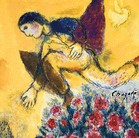
[ The following concerns this week's Torah reading (Beshalach) and the crossing of the sea... ]
01.22.18 (Shevat 6, 5778) Perhaps the central event of this week's Torah portion is how the LORD split the waters of the sea to make a path for His people to escape from Egypt. This event is commemorated in the great "Song the Sea" (i.e., Shirat Hayam: שִׁירַת הַיָּם), a hymn praising God for His deliverance (see Exod. 15:1-21). Because of its critical significance for the Jewish people, the Sabbath on which this song is chanted is called Shabbat Shirah ("Sabbath of the Song"), and the custom is for all the congregation to rise while it is recited...
The Torah states that when the Israelites entered the sea, it became dry land, with the water as "a wall (חוֹמָה) to their right and to their left" (Exod. 14:29). To commemorate this miracle, the Hebrew text of the "Song of the Sea" is stylized to resemble a "wavy wall," with the words written in alternating "blocks" to suggest a wave of water, like this:
 |
The soferim (Torah scribes) count exactly 198 words in this song, which is the numerical value for the word tzchok (צחק), a word that means "laughter" and is the word used to describe Sarah's response when she finally gave birth to Isaac (Gen. 21:6). According to Rabbi Bachya, the laughter in Isaac's name comes from Abraham's joy (Gen. 17:17). The joy of Isaac's birth, then, is linked with the "birth" of the nation of Israel at the time of the Exodus, just as his symbolic death during the Akedah represents Israel's rebirth...
Because it marks deliverance, the Song of the Sea (i.e., the Song of Moses) as well as the "Song of the Lamb" will be sung in the world to come (Rev. 15:3). For more on this, see "The Song of the Sea: Further Thoughts on Beshalach."
Parashat Beshalach - בשלח

[ In our Torah portion this week, the waters of the Red Sea divide to make a path for the Israelites, a miracle that symbolized newness of life as God's liberated people... ]
01.21.18 (Shevat 5, 5778) Last week's Torah portion (i.e., parashat Bo) described how the Israelites were finally delivered from their cruel bondage in Egypt after God issued the decisive plague during the time of Passover. In this week's portion (i.e., parashat Beshalach), the Israelites began their journey home, after 430 years of exile. Instead of leading them along a direct route to the Promised Land, however, the LORD directed them south, toward the desert, where the Glory of God appeared as a Pillar of Cloud by day and as a Pillar of Fire by night to lead them on their way. When Pharaoh heard that the Israelites were at the border of the desert, however, he perversely decided to pursue them and bring them back to Egypt. God then redirected the Israelites to camp near the edge of the Sea of Reeds, where the Egyptian army finally caught up with them. Dramatically, the Israelites were caught between the sea on one side, and Pharaoh's army on the other...
The terrified people then began to blame Moses for their predicament. Moses reassured them of God's great deliverance and raised his staff to miraculously divide the waters of the sea. All that night the Shekhinah Glory enshrouded the Egyptian army but gave light to Israel as the people crossed through the sea on dry ground. Just before dawn, the dark pillar of cloud that veiled the Egyptian army lifted, and the soldiers immediately rushed after the Israelites into pathway of the sea. God then told Moses to lift his staff again so that the waters would overwhelm the Egyptians with their chariots and horsemen. By the time dawn arrived, the Israelites saw the dead bodies of Pharaoh's army lining the seashore.
 |
Shabbat Shirah - שַׁבַּת שִׁירָה
Because of the critical significance of the miracle of crossing the sea, this Sabbath is called Shabbat Shirah, the "Sabbath of the Song," because it includes the song of deliverance sung by Moses and Miriam after the people made safe passage to new life. The "Song of the Sea" (i.e., shirah hayam) begins, "The Lord is my strength and song, and he is become my salvation" / עָזִּי וְזִמְרָת יָהּ וַיְהִי־לִי לִישׁוּעָה (Exod. 15:2, cp. Isa. 12:2). For Orthodox Jews, singing Shirat Hayam every day is thought to fulfill the biblical commandment to "remember the day of your departure from the land of Egypt as long as you live" (Deut. 16:3). Note that Shirat Hayam is also sung on the 7th day of Passover, as a memorial of the deliverance by God through the waters of the Sea of Reeds.
The great message of our deliverance resounds throughout Jewish history, and indeed it is regarded as a theme of the faithful love of LORD for His people:
הִנֵּה אֵל יְשׁוּעָתִי אֶבְטַח וְלא אֶפְחָד
כִּי־עָזִּי וְזִמְרָת יָהּ יְהוָה
וַיְהִי־לִי לִישׁוּעָה
hi·nei · el · ye·shu·a·ti · ev·tach · ve·lo ·ef·chad
ki · o·zi · ve·zim·rat · Yah · Adonai
vai·hi · li · li·shu·ah

"Behold, God is my salvation; I will trust, and will not be afraid;
for the LORD God (יָהּ יְהוָה) is my strength and my song,
and he has become my salvation."
(Isaiah 12:2)
Following their jubilation, the narrative resumes as God led the people away from the sea, into the desert of Sin (מִדְבַּר־סִין), a desolate region about midway to Mount Sinai. After traveling three days without finding any water, however, the people complained and God provided them with fresh water at Marah. Awhile later, the matzah the people had brought with them ran out and God tested their obedience by giving them "bread from heaven" (i.e., manna). The portion ends with the Amalekites' surprise attack of Israel at Rephidim, near Mount Sinai, and the introduction of Joshua as the leader of the army of Israel.
The Duty of Right Thinking...
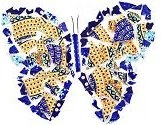
01.21.18 (Shevat 5, 5778) The Scriptures counsel us to be transformed (μεταμορφόω) by "renewing our minds" (Rom. 12:2), though just how we are to do this remains an open question. Our perspectives and attitudes are shaped by our assumptions about life, many of which are "preconscious" or hidden from our awareness. Habitual thoughts, biases, prejudices, fears, etc., all affect (and distort) the way we see and understand reality. In light of this, how can we change? How can we overcome our habitual negativity, misery, and general unhappiness? How do we develop right thinking power? How do we learn to apply our minds to perceive the good, instead of responding in unreflective and negative ways to our circumstances? How do we discipline our will so that "if there is anything worthy of praise, think about these things" (Phil. 4:8)?
While there are many books on the subject of logic, detecting fallacies, and using sound reasoning techniques, there are not many that discuss the "morality" of our thinking, that is, exercising our God-given responsibility to perceive the truth and to consistently express it in our everyday actions. Since our thinking invariably leads to practical choices, we have a primary duty to know the truth and live out its implications in our lives. The failure to do so is not only inconsistent, logically speaking, but immoral, ethically speaking (and dangerous, spiritually speaking, since bondage is ignorance of the truth). If the truth bears witness that there is a personal God who creates each soul in the world, for instance, this should affect how we value and respect others, and the failure to do so will result in cognitive dissonance and internal contradiction that yields mental suffering, misery, emotional pain, and insecurity in our lives. A "double-minded" person is "two-souled" (δίψυχος), unstable (i.e., ungrounded, restless, unbalanced) in all his ways (James 1:8).
Healing comes from receiving the light of truth, being "single-minded," with our eyes focused on what is real. "If your eye is "single" (i.e., ἁπλοῦς, sincere, focused)," Yeshua said, "your whole body will be filled with light" (Matt. 6:22). We are to "renew" (ἀνακαινόω) our minds, which means elevating our thinking by focusing on God. Likewise the Torah commands: "You shall be made whole (i.e., tamin: תָּמִים) with the LORD your God" (Deut. 18:13). We are made "whole" or "perfect" (i.e., complete) when we resolutely turn to God for healing of our inner dividedness, as it says: "The Torah of the LORD is perfect (תָּמִים), returning the soul" (Psalm 19:8). And where it is written, "Let us hear end of the matter: Fear God and love his commandments, the text adds: ki zeh kol-ha'adam (כִּי־זֶה כָּל־הָאָדָם), "for this is the whole man," suggesting that those who return will be healed of their double-mindedness (Eccl. 12:13). Ultimately we are made whole when we are united to God in Messiah, for then we are "with the LORD our God" and the Spirit writes Torah within the heart of faith (Jer. 31:33).
The Eye of Faith...

01.19.18 (Shevat 3, 5778) "The optimist believes that this is the best of all possible worlds; the pessimist believes the optimist is right..." The facts remain the same for both, but what is different is something within the heart, something that moves the will to no longer recoil from the world but rather to accept it.... Faith is a type of courage, a willingness to take risks, even in the midst of ambiguity. It surrenders to God's plan and will, even if that plan makes no rational sense at the moment. Of course it is intellectually "safer" to abstain from such trust and to yield to a "hermeneutic of suspicion." It is woefully easy to play the skeptic, to toy with ultimate questions, to affect intellectual superiority -- but at what cost? Is the supposed "defense" against being mistaken more important the risk of commitment? But such an approach to life is a essentially a form of cowardice. Without risk, we would never marry, have children, or take hold of our dreams. Some people might dismiss the dream of God's love as nonsense and futility, but the Scriptures make it clear that such hope represents the very substance (ὑπόστασις) of our faith (Heb 11:1).

There is a "false zeal" that leads people to estrangement and confusion. Withholding acceptance of the universe (or worse - withholding acceptance of others) is ultimately grounded in an abstract sense of "justice." However, justice itself cannot stand alone, since God Himself is the Source and Standard of all true justice. Those who invoke the ideal of justice therefore implicitly call upon the God of Justice and Truth as their ally. Among other things this implies that blaming "God" or accusing Him of being unjust is a "category" mistake. God cannot be unjust - by definition - and therefore an accusation that God is unjust is really an accusation against an idol of the mind. There is no "higher court of appeal" in the case of the LORD, and ultimately, how we choose to see is our own responsibility. We cannot "suspend" judgment indefinitely. As Yeshua taught us: "Forgive us...as we forgive...", which means that our forgiveness of others (including God) is the measure of our own state of forgiveness, "for with the measure you use it will be measured back to you" (Luke 6:38). This is the principle of middah keneged middah ("like for like") - the very essence of justice itself. "According to your faith, be it done unto you." Passion is often the determiner of reason, and the carnal mind will invariably find itself at odds with spiritual truth and reality.
In C.S. Lewis' book The Silver Chair, the "White Witch" cast an evil spell on Prince Rilian, Eustace, Jill, and Puddleglum who had bravely faced the risks involved in rescuing the deposed prince. "There is no Narnia; there is no Aslan," she kept chanting as she sprinkled the seducing incense, attempting to cause them to doubt the message of hope within their own heart. It took the burning of Puddleglum's flesh to awaken their hope once again. It is a mystery, but the LORD uses suffering in our lives to rouse us from our deathly slumbers.
Necessarily every human being is a theologian of sorts, since thinking about what is ultimately real is inescapable, especially when we are confronted with questions regarding life and death.... The issue often isn't whether a person will believe in God, but rather how he or she will approach the question of God's Presence in light of suffering. Part of the difference between a "theology of rebellion" and a "theology of hope" is that rebellion is a mode of the intellectual (i.e., a deification of logic, a demand for temporal and this-worldly justice, and so on), whereas hope is a mode of personal trust (i.e., a "letting go" of the demand for answers in order to surrender to love). When you encounter God as the lover of your soul, you begin to apprehend the truth that "love is patient and kind; love does not envy or boast; it is not arrogant or rude; it does not insist on its own way; it is not irritable or resentful; it does not rejoice at wrongdoing, but rejoices with the truth" (1 Cor. 13:4-6). Being in a genuine love-relationship with God gives you the courage to face the ambiguity of a world filled with suffering with hope and compassion.
חֶסֶד וֶאֱמֶת אַל־יַעַזְבֻךָ קָשְׁרֵם
עַל־גַּרְגְּרוֹתֶיךָ כָּתְבֵם עַל־לוּחַ לִבֶּךָ
che·sed ve·e·met al ya·az·vu·kha, kosh·rem
al gar·ge·ro·tey·kha, kot·vem al lu·ach lib·be·kha

"Let not love and truth forsake you; bind them around your neck;
write them on the tablet of your heart" (Prov. 3:3)
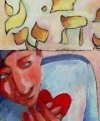
Download Study Card
The Scriptures declare that "we are saved by hope" (ελπιδι εσωθημεν). God's Holy Spirit imparts hope to our hearts so that we can walk in the victory of faith (Rom. 8:24-28). The LORD gives birth to our hope and is the goal of our hope's deepest longings... Yeshua's personal love for you is the answer to all your heart's questions. And now, "May the God of hope (אלהֵי הַתִּקְוָה) fill you completely with joy and shalom (שִׂמְחָה וְשָׁלוֹם) in your trusting, so that by the power of the Ruach HaKodesh (בְּעז רוּחַ הַקּדֶשׁ) you may overflow with hope" (Rom. 15:13). Amen.
Personal Update: I did not mention it earlier, but I have been sick most of this week, dealing with exhaustion, pain, and some other issues. Thank you for remembering this ministry in your prayers, friends; we go a day at a time with God's help. Shabbat Shalom.
Ceasing from Anger...

01.19.18 (Shevat 3, 5778) "Cease from anger, and forsake wrath: fret not thyself in any wise to do evil, for evildoers shall be cut off…" (Psalm 37:8-9). The temptation for many is to get ensnared by offense – to so identify with wounds of the past that we become bitter and "cut off" from our own hearts. We have to turn away from the pain that drives us into exile. Someone once said that great sins are like great possessions -- both are difficult to give up. We think that "letting go" of what we want is difficult, but it is often far harder to let go of what we don't want... We have to be willing to "give up our sins" in order to find inner healing (and "giving up our sins" also means breaking free of the "pride-shame" cycle). Often we can only get to this point when we are afflicted and weary of our soul's sickness. Holding on to resentment creates a terrible bondage of the soul. Seeking retaliation usurps God's authority in our lives and is a sign of radical unbelief... "Perfect love" (אַהֲבָה שְׁלֵמָה) casts out fear and trusts in God's care despite the testing of our present circumstances...
It is written in our Scriptures: "Whatever does not proceed from faith is sin" (Rom. 14:23). Our most profound problem in life -- the underlying root of our other sins -- is always unbelief that takes the form of forgetfulness, mindlessness, and lethargy. This then leads to fear, pride, and other attitudes of heart that are finally expressed as sinful actions. Hence we are urged: "Seek the LORD while He may be found" (Isa. 55:6). If we were truly awake to the reality of the risen Savior, sin would often not find its "occasion" in our lives. If faithlessness is the matrix of sin, hope is the matrix of teshuvah...
The sages of the Talmud equate anger with idolatry (Shabbat 105a). We often feel most angry when we believe we are losing control of life. We feel helpless, powerless, and invisible, so we attempt to exert our will in order to feel capable, powerful, visible -- alive. Our will therefore becomes all-important, usurping the will of God for our lives... Yet this is essentially a return to our previous life -- the "womb" of flesh from which we were delivered. We have "forgotten" the truth about reality and are now operating under a set of false assumptions. Teshuvah here means waking up to reality, "reframing" the situation in light of truth, remembering who God is and who you are, and then asking for God's loving intervention.... Instead of trying to control the situation using manipulative methods, we look to the Spirit of God to direct us and show us the path of righteousness....
New Beginnings...

[ The following is related to this week's Torah reading, parashat Bo.... ]
01.19.18 (Shevat 3, 5778) The very first word of the Torah indicates the awareness of the significance of time - "in the beginning..." (Gen. 1:1), and according to Jewish tradition, the very first commandment given to the children of Israel (as a whole) was that of Rosh Chodesh (ראש חודש), or the declaration of the start (or head) of the "new month," particularly concerning the first month of their redemption (Exod. 12:2). In other words, Passover month was to begin Israel's year. Note that the word for month (i.e., chodesh) comes from the root chadash (חָדָש), meaning "new," and therefore the Passover redemption (chodesh yeshuah) was intended to mark a "new beginning" for the Jewish people. And indeed, God marks the start of our personal redemption as the beginning of our life as a new creation (2 Cor. 5:17), just as Yeshua is the "first of the firstfruits" of God's redeemed humanity (1 Cor. 15:45-49).
For more on this subject, see "Parashat Bo: The Significance of the Moon."
Walking by Faith....
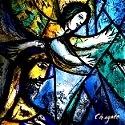
01.18.18 (Shevat 2, 5778) The Hebrew word for "faith" is emunah (אֱמוּנָה), which comes from the verb aman (אָמַן), meaning to uphold, support, to make steady and sure. The Hebrew word for "truth" (אֱמֶת) comes from the same root, as does the word "amen" (אָמֵן), implying that reality is upheld and subsists by the Word of God's power (Heb. 1:3; Col. 1:17). Faith enables the soul to perceive the eternal within the transitory, the invisible within the visible, and the Divine Presence in the midst of the whirlwind. When applied to the heart, "faith" is better understood as "faithfulness," since it implies integrity and trustworthiness, and so on. God's faithfulness is bound with His love (חֶסֶד), which means that He can be relied upon to uphold you as you sojourn through this world to world to come...
We "walk by faith, not by sight," as if the invisible were indeed visible. We must stay focused and uphold our hope, for through hope we are saved (Rom. 8:24). Faith is the conviction (ἔλεγχος) of things unseen (Heb. 11:1). Do not be seduced by mere appearances; do not allow yourself to be bewitched into thinking that this world could ever be your home. No, we are strangers and pilgrims here; we are on the journey to the reach "the City of Living God, to heavenly Jerusalem, to the assembly of the firstborn who are enrolled in heaven" (Heb. 12:22-23). Therefore please do not lose heart. Keep to the narrow path. Set your affections on things above since your real life is "hidden with God" (Col. 3:1-4). Do not yield to the temptation of despair. Look beyond the "giants of the land" and reckon them as already fallen. Keep pressing on. Chazak, chazak, ve-nit chazek - "Be strong, be strong, and let us be strengthened!" Fight the good fight of the faith. Take hold of the eternal life to which you were called (1 Tim. 6:12).
 |
Happy 2nd Birthday, Emanuel David!
Sufficiency from God...

01.18.18 (Shevat 2, 5778) We must always be on guard against flattering ourselves, since the "flesh" naturally assumes that there is something we must add or may contribute to God's work of salvation given in Yeshua... Human pride is always scandalized by the message of the cross, since the cross represents the radical insufficiency of the ego to please God... There is absolutely nothing we have to commend ourselves to God, and even our faith is a miracle based on divine prerogative and not our own wisdom. "If anyone thinks he is something, when he is nothing, he deceives himself" (Gal. 6:3). God does not ransom the soul so that the flesh may be coddled or appeased. There is one verdict for all of us, there is one "narrow gate" that leads to life, and that gate is opened through the inner confession that we are hopeless sinners who are entirely unable to save ourselves. This is why the "gate is narrow and the way is hard (θλίβω) that leads to life, and those who find it are few" (Matt. 7:14). The salvation of the soul is tribulation (θλῖψις) for the flesh...
Yeshua didn't die a painful and bloody death on the cross to save sinful flesh but to become sinful flesh in exchange for the sinner who trusts in Him (2 Cor. 5:21). The cross is not the place of "moral reformation" but rather the confession of our own death. We don't come to the cross to get "cleaned up" but rather to die and be reborn. By faith there is a divine exchange, whereby the natural life is crucified and buried and the spirit is miraculously reborn and given life from heaven, but (again) even this faith is a gift from God... Previously we were described as "dead" in our sinful state - the living dead, if you will - until God sovereignly opened our eyes to personally reveal the truth to us. Now we "take up the cross" by identifying all that we are with Yeshua. We live in a state of ongoing dependence. The entire process of salvation and sanctification entails being a humble witness of what God's great power has done and is doing for you....
יְהוָה תִּשְׁפּת שָׁלוֹם לָנוּ
כִּי גַּם כָּל־מַעֲשֵׂינוּ פָּעַלְתָּ לָּנוּ
Adonai · tishpot · shalom · lanu
ki · gam · kol · ma'asenu · pa'alta · lanu

"O LORD, you will establish peace for us,
for You have indeed done for us all our works."
(Isa. 26:12)

Hebrew Study Card
God does the work "for us" (לָּנוּ) and we are His witnesses... Salvation is "of the LORD," and is not the result of our own efforts. Anything of eternal value comes from God alone, who is the beginning and end of grace. "Not by (human) might, nor by (human) power, but by my Spirit, says the LORD of hosts (Zech. 4:6). If we lose sight of this truth, we are again made subject to the "law of sin and death" (תּוֹרַת הַחֵטְא וְהַמָּוֶת), that is, the futile principle of self-justification that constitutes the "wheel of suffering." We can escape this cycle only by means of the cross of Yeshua, where we accept the truth about our condition and trust God for our deliverance. It is the "law of the Spirit of Life" (תוֹרַת רוּחַ הַחַיִּים), that is, the inner reign of the Holy Spirit, that sets us free from the reign of sin that leads to death.
וְהָיָה מַעֲשֵׂה הַצְּדָקָה שָׁלוֹם
וַעֲבדַת הַצְּדָקָה הַשְׁקֵט וָבֶטַח עַד־עוֹלָם
vehayah · ma'aseh · hatzedakah · shalom
va'avodat · hatzedakah · hashket · va'betach · ad-olam

"And the work of the Righteousness One will be peace,
and the service of Righteousness One will be quietness and assurance forever."
(Isa. 32:17)

Note that it is the "work" (singular) of righteousness that is in view here – not the "works" of righteousness (plural) which we might perform (Titus 3:5). In other words, it is the work of the LORD alone, that is, the righteousness and glory of the Messiah, blessed be He, that gives us true peace. As it is written, "The salvation of the righteous comes from the LORD; he is their stronghold in time of trouble" (וּתְשׁוּעַת צַדִּיקִים מֵיְהוָה מָעוּזָּם בְּעֵת צָרָה); Psalm 37:39. Likewise the "service of righteousness" refers to the singular "avodah" of the great High Priest "after the order of Malki-Tzedek," which is the eternal service of intercession established in the decreed will and counsel of God Almighty (Heb. 7:20-21). This does not refer to acts of service performed by human beings in their religious ceremonies (i.e., the Levitical priesthood with its various forms of sacrificial worship), but rather the perfect act of service and sacrifice of Yeshua given upon the cross -- the everlasting atonement and eternal redemption secured by the priesthood of Yeshua (Heb. 9:12). "For our sake He made him to be sin who knew no sin, so that in him we might become the righteousness of God (δικαιοσύνη θεοῦ)." Only God through Yeshua can give us true inner peace and security forever... Only Yeshua gives us peace with God....
Keeping Focused...
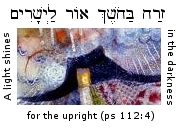
01.18.18 (Shevat 2, 5778) Where it is written, "cast all your anxiety on him because he cares for you" (1 Pet. 5:7), the word translated "anxiety" (μέριμνα) comes from a Greek verb (μερίζω) that means to be fragmented or divided into parts and pieces. Being anxious is therefore the uneasy state of being unfocused and divided within oneself... King David understood the need for a unifying principle for his life: "One thing I ask of the Lord; that is what I will seek" (Psalm 27:4). He understood that walking in the truth required "uniting his heart," or "repairing the breach" within his inner affections so that he could experience reverence and awe before the Divine Presence (Psalm 86:11). King David knew that "right desire is the deepest form of prayer."
שִׁוִּיתִי יְהוָה לְנֶגְדִּי תָמִיד
כִּי מִימִינִי בַּל־אֶמּוֹט
shiv·vi·ti · Adonai · le·neg·di · ta·mid
ki · mi·mi·ni · bal · e·mot

"I have set the LORD always before me;
because he is at my right hand, I shall not be shaken"
(Psalm 16:8)

Hebrew Study Card
The Scriptures warn that a "double-minded man is unstable in all his ways" (James 1:8). The word translated "double-minded" is dipsuchos (δίψυχος), a word formed from δίς, "twice" and ψυχή, "soul." The word describes the spiritual condition of having "two souls" that both want different things at once. Being double-minded therefore describes a state of inner ambivalence, of having two separate minds holding contradictory thoughts. (In a sense, being double-minded is an affliction for the person of faith, since the unregenerated person lacks even the capability for collision within the heart.)
To repair this breach, to unify his heart and its affections, David determined to "set" the LORD before him. Note that the verb "set" here is piel, that is, intensive... We must intently focus our mind and heart to regard ourselves as in the Presence of God; we must sense His eye upon us and "know before Whom we stand." The sages say that when David wrote these words, he was referring to the scroll of Torah which he kept tied to his arm. David literally "set" the Word of the LORD upon his right hand to help him keep focused (shel yad).
Many people live in regret over the past or in dread of the future. The Hebrew name of God, the Tetragrammaton (יהוה), means: "He is Present." We can only find God now, today, at this hour. Today if you hear His voice... Yeshua said, "The kingdom of heaven is within you" (מַלְכוּת הָאֱלהִים בְּקִרְבְּכֶם), that is, is to be found within the heart of faith (Luke 17:21).
"If you want to know about Heaven and what Heaven is, you do not need to cast your thoughts many thousands of miles off, for that place, that heaven thousands of miles away, is not your Heaven. The true Heaven is not a created place but an uncreated place, and it is not found in a particular place but everywhere, even in the very place where you are standing and going. For when your Spirit within yourself is able to penetrate inwardly through and beyond your own flesh and life, and is able to catch hold upon the innermost moving of God, then you are clearly in Heaven."
- Jacob Boehme (1575-1624)
Purity of the heart is to will one thing... When we are anxious, we become inwardly fragmented or divided, and thereby lose our sense of identity and purpose in this world. God invites us to come boldly before Him to find help (Heb. 4:16). He is a "very present help in trouble" (Psalm 46:1). We cast our burdens upon the LORD so that He can sustain us (Psalm 55:22), and that we may have a "right spirit" (רוּחַ נָכוֹן) renewed within us (Psalm 51:12). We can bring our brokenness to God - including those distractions that tear us away from Him and that make us inwardly "two-souled" - to find healing for our hearts. When we do so, we will discover the Source of Power that makes us "unshakable and always able to abound in every good work" (1 Cor. 15:58).
The Shema Prophecy...

01.17.18 (Shevat 1, 5778) Instead of thinking of the Shema (שְׁמַע) as a commandment to be externally obeyed, you can regard it as a prophecy about your inner life: "You shall love (וְאָהַבְתָּ) the LORD your God with all your heart, and with all your soul, and with all your might" (Deut. 6:5). Only God can quicken a dead heart, after all, and fill the soul with holy affections. Only the LORD can impart to us strength needed to take hold of promises as He writes His Torah upon our heart. As it is written, "For from him and through him and to him are all things. To him be glory forever" (Rom. 11:36).
וְאָהַבְתָּ אֵת יְהוָה אֱלהֶיךָ בְּכָל־לְבָבְךָ
וּבְכָל־נַפְשְׁךָ וּבְכָל־מְאדֶךָ
ve·a·hav·ta · et · Adonai · E·lo·he·kha · be·khol · le·vav·kha
u·ve·khol · naf·she·kha · u·ve·khol · me·o·de·kha

"You shall love the LORD your God with all your heart
and with all your soul and with all your might"
(Deut. 6:5)
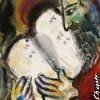
God will take away your stony heart and give you a new heart, along with a new spirit to be willing to know His love, as it is written, "I will give you a new heart, and a new spirit I will put within you. And I will remove the heart of stone from your flesh and give you a heart of flesh" (Ezek. 36:26). Your new heart will be like Yeshua's own: open, accessible, flexible, trusting, sharing, emotionally alive, able to feel, pulsating with God's energy and power...
The promise is this: "you shall love," since love is what is most true about who you are... You shall love the LORD, since He is the Source and End of all real love. You will love the LORD more and more, as you grow ever closer to Him and one day will behold Him panim-el-panim (פָּנִים אֶל־פָּנִים), "face to face." You shall love the LORD with all your heart, which implies God has indeed given you a new heart to love Him with; and with all your soul, which implies that you are enabled to truly feel, and that your heart is made tender and sensitized; and with all your might - that is, with all your "muchness," your "substance," or that reality that makes you who you really are in the LORD...
Note: What does a commandment to love mean? People can obey God for a variety of reasons, many of which are not spiritually genuine. After all, Yeshua's harshest words were directed to the scribes, Sadducees, and Pharisees who "obeyed" the commandments yet were severely missing something altogether essential...
Retelling the Story...
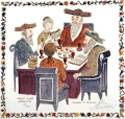
[ The following is related to this week's Torah reading (Bo) and the story of yetziat mitzrayim, the great Exodus from Egypt.... Please read the Torah portion to "find your place" here. ]
01.17.18 (Shevat 1, 5778) In our Torah portion this week (i.e., parashat Bo) we are commanded to retell "in the hearing of your son and your grandson" how the LORD overthrew the arrogance of the Egyptians and performed wonders to deliver us" (Exod. 10:2). This commandment is the basis of the Passover haggadah (i.e., הַגָּדָה, "telling"), the "oral tradition" of our faith, when we personally retell the story from generation to generation so that the spirit of the message is not lost. We participate in the seder to make it "our own story," a part of who we are. Therefore b'khol-dor vador: "Every Jew must consider himself to have been personally redeemed from Egypt." Retelling the story of the exodus enables us to "know that I am the LORD" (Exod. 10:2). We recall the words, bishvili nivra ha'olam – "For my sake was this world created," while we also recall the words, anokhi afar ve'efer – "I am but dust and ashes." When we retell the story of the great redemption, we strengthen our faith and better know the LORD.
Indeed God admonishes that the story of our redemption should be "as a sign on your hand and as a memorial (זִכָּרוֹן) between your eyes, that the Torah of the LORD may be in your mouth" (Exod. 13:9). We are instructed to "remember" (זָכַר) over and over again because our disease, our sickness of heart, induces us to forget how we were enslaved in the house of bondage. We must consciously remember and never forget that only by means of God's strong hand (בְּיָד חֲזָקָה) are we ever made free (John 8:36).
וְהָיָה לְךָ לְאוֹת עַל־יָדְךָ
וּלְזִכָּרוֹן בֵּין עֵינֶיךָ
לְמַעַן תִּהְיֶה תּוֹרַת יְהוָה בְּפִיךָ
כִּי בְּיָד חֲזָקָה הוֹצִאֲךָ יְהוָה מִמִּצְרָיִם
ve·ha·yah · le·kha · le·ot · al · ya·de·kha
ul·zik·ka·ron · bein · ei·ne·kha
le·ma·an · ti·he·yeh · to·rat · Adonai · be·fi·kha
ki · be·yad · cha·za·kah · ho·tzi·a·kha · Adonai · mi·mitz·ra·im

"And it shall be to you as a sign on your hand
and for a memorial between your eyes,
that the Torah of the LORD may be in your mouth.
For with a strong hand the LORD has brought you out of Egypt."
(Exod. 13:9)

In this connection, the traditional haggadah describes four kinds of "children" at the seder table. First is the child who is unable to ask, or who doesn't understand that there is a question about the meaning of the seder (she'eilo yodea lishol). Second is a simple child who goes along with the seder but does not bother to look beneath the surface to find its meaning and relevance. The third child is rasha - alienated and distant - a stranger at the table who wants to hear a different story rather than the one being told. Finally, the wise child (chakham) humbly asks, seeks, and desires to understand the mystery and the truth about Passover. The wise child's questions lead to answers that lead to yet other questions, and so the meaning of the redemption belongs to him... By extension, since Yeshua is indeed the Lamb of God, the true Substance of the meaning of Passover, we must ask and answer the question, "Were you there when they crucified our LORD?"
The Life of the Blood

[ The following is related to this week's Torah reading (Bo) and the story of the Passover exodus from Egypt.... Please read the Torah portion to "find your place" here. ]
01.16.18 (Tevet 29, 5778) The Hebrew word for "Passover" comes from a verb pasach (פָּסַח) that means to "pass over," though it also can mean "to limp," recalling the "heel of Messiah" that was bruised in the battle for our deliverance (Gen. 3:15). It is written in the Torah, "the life (i.e., nefesh [נֶפֶשׁ], breath, "soul") of the flesh is in the blood, and I have given it for you on the altar to cleanse (i.e., kafar [כָפַר], cover, atone, ransom, purify) your souls, for it is the blood that makes atonement by the life" (Lev. 17:11). When Yeshua offered his blood upon the cross for our purification, he poured out his very soul, his final breath, and his last extremity for the sake of our healing... Since blood is the carrier of life, it has its own spiritual "voice" that intercedes on our behalf in the Holy of Holies made without hands (Gen. 4:10; Rev. 6:10; Heb. 9:12, 12:24). The great passion of our Lord still speaks, since Yeshua always lives to make intercession for us (Heb. 7:25).
The Great Lamb of God...
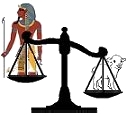
01.15.18 (Tevet 28, 5778) From our Torah portion this week (i.e., parashat Bo) we learn that though God instructed each household to select its own lamb for the Passover, the Torah refers to "the" Lamb of God, as if there was only one: "You shall keep it [i.e., the Passover lamb] until the fourteenth day of this month, when the whole assembly of the congregation of Israel shall slaughter him (אתוֹ) at twilight (Exod. 12:6). Note that the direct object "him" (i.e., oto) can be read as Aleph-Tav (את) combined with the letter Vav (ו), signifying the Son of Man who is First and Last... Indeed there is only one "Lamb of God" that takes away the sins of the world, and that is our Savior, Yeshua the Messiah...
רָאוּי הַשֶּׂה הַטָּבוּחַ לְקַבֵּל גְבוּרָה
עשֶׁר וְחָכְמָה וְכּחַ וִיקַר וְכָבוֹד וּבְרָכָה
ra·uy · ha·seh · ha·ta·vu·ach · le·ka·bel · ge·vu·rah
o·sher · ve·chokh·mah · ve·ko·ach · vi·kar · ve·kha·vod · uv·ra·kha

"Worthy is the Lamb who was slain, to receive power and wealth and wisdom
and might and honor and glory and blessing"
(Rev. 5:12)

Hebrew Study Card
The Torah of Passover...
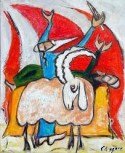
01.15.18 (Tevet 28, 5778) The very first occurrence of the word "Torah" (תּוֹרָה) in the Scriptures refers to the faith of Abraham (Gen. 26:5), and the second occurrence refers to the law of Passover: "There shall be one law (תּוֹרָה) for the native and for the stranger who sojourns among you" (Exod. 12:49). There is a link here. Abraham lived before the time of the Exodus, of course, and therefore he obeyed the Torah of Passover by means of the Akedah (the sacrifice of his beloved son Isaac and the substitution of the lamb of God upon the altar). Abraham's faith revealed that the inner meaning of Torah is that the "righteous shall live by faith" (Hab. 2:4, Rom. 1:17), that is, by trusting God's justification of the sinner (Heb. 11:17-19). The Torah of Passover likewise teaches that redemption from death is possible through the exchange of an innocent sacrificial victim. The blood of the lamb was "a sign" of imputed righteousness obtained entirely by faith - with no "leaven," or human works, added. This is the "korban" principle of "life-for-life" that underlies the sacrificial system of the Tabernacle as well. Ultimately all true Torah points to Yeshua, the Lamb of God, who is the divinely appointed Redeemer and promised Slayer of the Serpent...
"When the fullness of time (τὸ πλήρωμα τοῦ χρόνου) had come, God sent forth his Son, born of woman, born under the Torah, to redeem those who were under the Torah, so that we might receive adoption as sons" (Gal. 4:4-5).
Exodus and Freedom...

[ The following is related to our Torah reading for this week, Parashat Bo... ]
01.15.18 (Tevet 28, 5778) God's redemption is both "out of" and "into." The LORD takes us out of hell, bondage, and death into heaven, liberty, and eternal life. But note that he takes us out only to bring us back in; he redeems us to bring us to Sinai; he writes Torah upon our hearts; he makes us "in but not of" the world (John 17:15-16). Every Passover we retell the story of our redemption. We remember how we bitterly cried because of our bondage and how God graciously delivered us by the blood of the lamb. We rejoice that we are called am segulah - God's own treasured people. Because of God's love demonstrated at the cross, we are transferred (μεθίστημι) from the realm of darkness into the kingdom of the Divine Presence (Col. 1:13). Today may we live as salt and light to a perverse world, sharing the message of God's great liberation from the power of sin, death, and evil...
Exodus and the Lamb...

[ Our Torah reading for this week, Parashat Bo, describes the great Passover by means of faith in the efficacy of the blood of the Lamb of God and the subsequent exodus from Egypt... ]
01.14.18 (Tevet 27, 5778) Our Torah reading for this week begins with God commanding Moses "to go" (i.e., bo: בּא) before Pharaoh to announce further apocalyptic judgments upon Egypt. The purpose of this power encounter was to vindicate God's justice and glory (deliverance/salvation) by overthrowing the tyranny of unjust human oppression. Pharaoh's nightmare of "one little lamb" outweighing all the firstborn of Egypt was about to be fulfilled.
Recall that last week's Torah (Va'era) reported how Pharaoh defiantly refused to listen to Moses' pleas for Israel's freedom, despite seven devastating makkot (plagues) that came upon Egypt in God's Name (יהוה). In this week's portion (i.e., parashat Bo), the battle between the LORD and Pharaoh comes to a dramatic conclusion. The last three of the ten plagues are unleashed upon Egypt: a swarm of locusts devoured all the crops and greenery; a palpable darkness enveloped the land for three days and nights; and all the firstborn of Egypt were killed precisely at the stroke of midnight of the 15th of the month of Nisan... In this connection note that the word בּא ("go") and פרעה ("Pharoah") added together equal the gematria of משׁיח ("mashiach"), providing a hint of the Messianic redemption that was foreshadowed in Egypt. Every jot and tittle, chaverim!
Before the final plague, God instructed the Jewish people to establish a new calendar based on the sighting of the new moon of spring. On the tenth day of that month, God told the people to acquire a "Passover offering" to Him, namely an unblemished lamb (or goat), one for each household. On the 14th of that month ("between the evenings") the animal would be slaughtered and its blood sprinkled on the doorposts and lintel of every Israelite home, so that God would "pass over" these dwellings when He came to kill the Egyptian firstborn that night. The roasted meat of the offering was to be eaten that night with unleavened bread (matzah) and bitter herbs (maror). God then commanded the Israelites to observe a seven-day "festival of matzah" to commemorate the Exodus for all subsequent generations.
Because of this, our corporate identity begins with a shared consciousness of time from a Divine perspective. The mo'edim (festivals of the LORD) all are reckoned based on the sacred calendar given to the redeemed Israelite nation. As it is also written in the Book of Psalms: "He made the moon for the appointed times" / עָשָׂה יָרֵחַ לְמוֹעֲדִים (Psalm 104:19). Undoubtedly Yeshua followed this calendar, as did His first followers (Gal. 4:4).
Just before the dreadful final plague befell, God instructed the Israelites to ask their Egyptian neighbors for gold, silver and jewelry, thereby plundering Egypt of its wealth (this was regarded as "uncollected wages" for hundreds of years of forced labor and bondage - not to mention for the services of Joseph, whose ingenuity brought the world's wealth to Egypt in the first place). Moses then instructed the people to prepare the Passover sacrifice, that is, the korban Pesach (קָרְבָּן פֶּסַה) - the Passover lamb - and to smear its blood on the two sides and top of the doorway, resembling the shape of the Hebrew letter Chet (ח). This Hebrew letter, signifying the number eight, is connected with the word חי (chai), short for chayim (חַיִּים), "life." The blood of the lamb (דַּם הַשֶּׂה) not only saves from the judgment of death, but also is a symbol of divine life given for our redemption. The "life is in the blood."
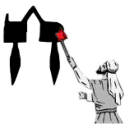
The dreadful final plague - the death of the firstborn - at last broke Pharaoh's resistance and he not only allowed the Israelites to depart without any conditions, he urged them to go. Because they left in great haste there was no time for their dough to rise. The Torah states that there were 600,000 adult men who left Egypt, along with the women, children, and a "mixed multitude" of other Egyptian slaves who tagged along.
The Israelites were commanded to consecrate all the firstborn to God and to commemorate the anniversary of the Exodus each year by celebrating the LORD's Passover in conjunction with the Feast of Unleavened Bread. During this time they were to remove all leaven from their homes for seven days, eat matzah, and retell the story of their redemption to their children. The portion ends with the commandment to wear tefillin (phylacteries) on the arm and head as a reminder of how the LORD saved the Israelites from their bondage in Egypt.
The Exodus Parable...

01.14.18 (Tevet 27, 5778) The great exodus of Israel from Egypt is the central parable of the Torah. The bondage of the Israelites to Pharaoh represents humanity's slavery to sin; God's deliverance from bondage is effected by trusting in the blood of the sacrificial lamb of God; the passage from death to life symbolically comes through baptism into the Sea of Reeds; the journey to truth represents the pilgrimage to Sinai, and so on. Indeed, the redemption in Egypt led directly to revelation given at Sinai, and when the LORD God gave the Ten Commandments, he did not begin by saying he was our Creator, but rather our Redeemer: "I am the LORD your God (אָנכִי יְהוָה אֱלהֶיךָ), who brought you out of the land of Egypt, out of the house of slavery" (Exod. 20:2). This is because the purpose of the creation itself is to demonstrate God's redemptive love and to be known as our Savior and Redeemer, just as Yeshua is the "Lamb slain from the foundation of the world" (Rev. 13:8; 1 Pet. 1:18-20; Eph. 1:4; 2 Tim. 1:9). "All things were created by Him (i.e., Yeshua), and for Him" and in Him all things consist (συνεστηκεν, lit. "stick together") (Col. 1:16-17). Creation therefore begins and ends with the redemptive love of God as manifested in the Person of Yeshua our Mashiach, the great Lamb of God and our Savior... He is the Center of Creation - the Aleph and Tav - the Beginning and the End (Isa. 44:6; Rev. 1:17). All the world was created for the Messiah: "For from him and through him and to him are all things. To him be glory forever. Amen" (Rom. 11:36). Ponder the glory of our Savior, chaverim! Shavuah Tov!
Hope and Deliverance...

[ The following is related to our Torah reading for this week, Parashat Va'era... ]
01.12.18 (Tevet 25, 5778) When Moses proclaimed the good news of God's forthcoming redemption for Israel, the Torah states that the people could not listen because they were "short of breath" (Exod. 6:9). Interestingly, this phrase (i.e., mi'kotzer ru'ach: מִקּצֶר רוּחַ) can also mean "lacking in spirit," as if in a paralyzed state of hopelessness. Indeed, life in this evil world can be suffocating at times. And though we may not be under the oppression of a cruel Pharaoh, we are affected by the "princes of this age" who spurn the message of the Messiah's redemption and love, and we are still subjected to bondage imposed by taskmasters who defy the LORD and who seek to enslave us by means of lies, propaganda, and threats of violence... The devil is still at work in the hearts and minds of many of his "little Pharaohs" that govern the world system...
It is evident that one of the central purposes of God's redemption is to bestow freedom and dignity upon his people. As the story of Pharaoh reveals, God does not take kindly to oppressors, dictators, and other megalomaniacal world leaders who deny the truth and who therefore seek to enslave (or kill) human beings created in His image and likeness. Just as God judged Egypt for its oppression and violence, so He will one day break the "rulers of this world" with a rod of iron and dash them in pieces like a potter's vessel (Psalm 2:9-10).
The Scriptures declare that "we are saved by hope" (ελπιδι εσωθημεν), that is, we are saved through an earnest expectation of good to come on account of the promises of the LORD God of Israel. Amen. The LORD is called "The God of Hope" (אֱלהֵי הַתִּקְוָה), indicating that He is its Author and its End (Rom. 15:13). God both gives birth to our hope (tikvah) and is the satisfaction of our heart's deepest longings. For those with God-given hope, gam zu l'tovah – all things work together for good (Rom. 8:28). In light of God's promises, hope is the one "work" that we are called to vigorously perform: "What shall we do, that we might work the works of God?" Yeshua answered, "This is the work of God, that you trust (i.e. hope) in the one whom He sent" (John 6:28-29).
Don't let the world system destroy or impugn your hope, chaverim... If the devil can't seduce you with illusory hope or counterfeit joy, he will attempt to oppress you with fear and doubt. Fight the good fight of faith and refuse to succumb to despair. Run the race before you with endurance (Heb. 12:1). Look up, for the time of your deliverance draws near... God redeems us for the sake of His love and honor... It is the "breath of God" that gives us life and courage to face this dark and perverse world (John 20:22). May you be filled with the hope and strength that comes from the Holy Spirit.
At any given moment of the day, regardless of our present circumstances, we can turn to the reality of the Divine Presence and come "boldly before the Throne of Grace." As Yeshua said, "To you it has been given to know the secrets of the kingdom of heaven..." (Matt. 13:11). The Spirit of God always says, "Come, my people, enter your chambers, and shut your doors behind you" (Isa. 26:20). In the secret places of our heart - our "prayer closet" - we appeal to the Hidden Presence to be manifest in the midst of every circumstance of our lives... Let us draw near to lean upon Yeshua now, chaverim! Shabbat Shalom, dear friends!
Prisoners of Hope...
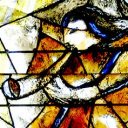
01.12.18 (Tevet 25, 5778) "Guide me in your truth and teach me, for you are the God of my Salvation (אֱלהֵי יִשְׁעִי); in you I wait all the day long" (Psalm 25:5). Because we are beset by difficulties and various trials in this life, we must seek the truth from God our Teacher, who is the Savior to all who look to Him. Our seeking is expressed in hope (תִּקְוָה), and this implies we lament over the exile and yearn for deliverance -- both for ourselves and for the whole world. We must console ourselves and find courage, since we are called asirei ha'tikvah (אֲסִירֵי הַתִּקְוָה), "prisoners of hope," to whom the word is given: "be not afraid," and "return to your strength, you prisoners of hope" (Zech. 9:12). The sages here note that the Hebrew word for "prisoner" (i.e., asir: אָסִיר) comes from the root asar (אָסַר), meaning "to bind" or "to fasten together," suggesting that we must be bound to hope with an unshakable bond, never surrendering to despair. Even in the pitch of deepest darkness God's kindness never ceases, and his love is renewed for us day by day (Lam. 3:22-23). Let us, then, press on in faith, strengthened in the conviction that the hope of the righteous will never be cut off.
הַדְרִיכֵנִי בַאֲמִתֶּךָ וְלַמְּדֵנִי
כִּי־אַתָּה אֱלהֵי יִשְׁעִי
אוֹתְךָ קִוִּיתִי כָּל־הַיּוֹם
had·ri·khei·ni · va'a·mi·te·kha · ve·lam·me·dei·ni
ki · at·tah · E·lo·hei · yish·i
o·te·kha · kiv·vi·ti · kol · hai·yom

"Guide me in your truth and teach me,
for You are the God of my Salvation;
in You I wait all the day long." - Psalm 25:5

Hebrew Study Card
"Though the fig tree does not blossom, nor fruit be found on the vines, though the produce of the olive fail and the fields yield no food, and though the flock be cut off from the fold and there be no herd in the stalls, yet I will rejoice in the LORD; I will take joy in the God of my salvation" (Hab. 3:17-18). The targum translates "I will rejoice in the LORD" as "I will rejoice in the Word of the LORD." The Source of such joy comes to the heart of faith that sees Elohei Yishi (אֱלהֵי יִשְׁעִי), the "God of my salvation," namely, the One who was and is and is to come (הַהוֶה וְהָיָה וְיָבוֹא) – the LORD our God Yeshua (Rev. 1:4;8; Isa 41:4). Augustine rendered Elohei Yishi as "God my Jesus," since "Jesus" (i.e., Yeshua) means YHVH saves. Yeshua is the One who breathed life into the first Adam just as He is the One who breathes eternal life into those who are descended from Him, the great "second Adam." He is the Source of our hope.
Dear friend, if you should find yourself in the "Slough of Despond," that is, in a swamp of despair, keep focused on the light ahead and strive to enter the straight gate. Resolve within your heart you would rather die fighting than return to the vain comforts and illusions of this world... May the LORD give you the strength to journey mechayil el chayil!
אַשְׁרֵי אָדָם עוֹז־לוֹ בָךְ
מְסִלּוֹת בִּלְבָבָם
יֵלְכוּ מֵחַיִל אֶל־חָיִל
יֵרָאֶה אֶל־אֱלהִים בְּצִיּוֹן
ash·rei · a·dam · oz-lo · vakh
me·sil·lot · bil·va·vam
yel·khu · me·cha·yil · el · cha·yil
ye·ra·eh · el-Elohim · be·Tzi·yon

"Happy is the person who finds strength in You,
in whose heart are pilgrim highways…
They go from strength to strength
and appear before God in Zion" - Psalm 84:5,7

Knowing your Exodus...

01.12.18 (Tevet 25, 5778) What was the reason for Abraham's dark vision (Gen. 15:12-15) and the subsequent exile of his children in Egypt – their persecution and suffering – were it not to experience redemption and receive the sacred duty to redeem others from bondage to evil? The deliverance from Egypt led directly to the revelation at Sinai. Therefore each of us is given shem ivri (עִבְרִישֵׁם), a "Hebrew name," when we cross over into the freedom we have in Yeshua. Indeed the New Testament says that the "Torah of Messiah" (תּוֹרַת הַמָּשִׁיחַ) is to bear one's another's burdens (Gal. 6:2).
With regard to the deeper question of why the tribulation of the exodus was spiritually necessary, the classical sages discussed whether or not it was possible to experience new revelation apart from the withdrawal (or transcendence) of a former revelation, and they suggested that God "withdrew" from the children of Israel in Egypt so that they could come to know him as YHVH – the Compassionate and Faithful One. In other words, God had to "locate" the people in Egypt – "be'mitzrayim" – a place of inescapable bondage – in order to remove them from it. That is why God began his message to Moses saying. "I AM YHVH" (אֲנִי יהוה), I appeared to Abraham, to Isaac, and to Jacob, as El Shaddai (בְּאֵל שַׁדָּי), but by my name the LORD (יהוה) I did not make myself known to them" (Exod. 6:2-3). God "appeared" to the fathers as the source of their promises, but the children of the Exodus generation were to be given new revelation of God's faithful love and deliverance...
The statement: "I will take you to be my people, and I will be your God, and you shall know that I am the LORD your God who has brought you out from under the burdens of the Egyptians" (Exod. 6:7) plainly states the goal of the redemption is to be brought into relationship with God as your personal Savior... This is the "love story" of the Exodus.
The Power of Truth...

[ The following is related to our Torah reading for this week, Parashat Va'era... ]
01.12.18 (Tevet 25, 5778) In this week's Torah reading (Va'era), the LORD sent Moses and Aaron to Pharaoh with the timeless message: shelach et ami (שׁלַּח אֶת־עַמִּי), "let my people go!" Because of Pharaoh's hardness of heart, however, God began the sequence of plagues that would demonstrate his sovereignty over all the powers and so-called "gods" of Egypt (Exod. 12:12). The ten plagues (i.e, eser ha'makot: עֶשֶׂר הַמָּכּוֹת) were given not just to vanquish the pride of Pharaoh, however, but to awaken the people of Israel. After hundreds of years of slavery, the people had forgotten who they really were and had passively accepted that all real power was vested in humans. Among other things, God's intervention was meant to deliver the people from the fallacy of ascribing greatness to worldly powers. Ultimately the people of Israel - and indeed the entire world - would come to understand ein od milvado (אֵין עוֹד מִלְבַדּו), "there is no power apart from Him" (Deut. 4:35).
I will be with you always...

01.12.18 (Tevet 25, 5778) The great Name of the LORD is "I-WILL-BE-WITH-YOU-ALWAYS" (אֲנִי אֶהְיֶה עִמָּךְ תָמִיד), which implies that we always live within God's Presence and care, even if we are often unaware of this truth. The Name YHVH (יהוה) signifies God's indomitable love and unfailing compassion. The LORD says to the trusting heart, hen al kapayim hachotikh: "Behold I have engraved you on the palms of my hands" (הֵן עַל־כַּפַּיִם חַקּתִיךְ; Isa. 49:16). Remember the One who stretched out his hands and died for your healing; remember that he said, "Don't be anxious about tomorrow, for tomorrow will be anxious for itself. Sufficient for the day is its own trouble." Again, "do not be anxious for any reason, but in everything by prayer and supplication with thanksgiving let your requests be made known to God, and the peace of God (שְׁלוֹם אֱלהִים), which surpasses all understanding, will guard your hearts and your minds in Yeshua the Messiah" (Phil. 4:6-7). God keeps in perfect peace (lit. "the peace of peace") those whose mind is stayed on Him (Isa. 26:3).
יֵצֶר סָמוּךְ תִּצּר שָׁלוֹם שָׁלוֹם
כִּי בְךָ בָּטוּחַ
בִּטְחוּ בַיהוָה עֲדֵי־עַד
כִּי בְּיָהּ יְהוָה צוּר עוֹלָמִים
yei·tzer · sa·mookh · tee·tzohr · sha·lom · sha·lom
kee · ve·kha · ba·too·akh
beet·khu · vadonai · ah·dey-ad
kee · be·Yah · Adonai · tzoor · oh·lah·meem

"You will keep him in perfect peace whose mind is stayed on you, for he trusts in you.
Trust in the LORD forever, for in Yah the LORD is everlasting strength".
(Isa. 26:3-4)

Hebrew Study Card
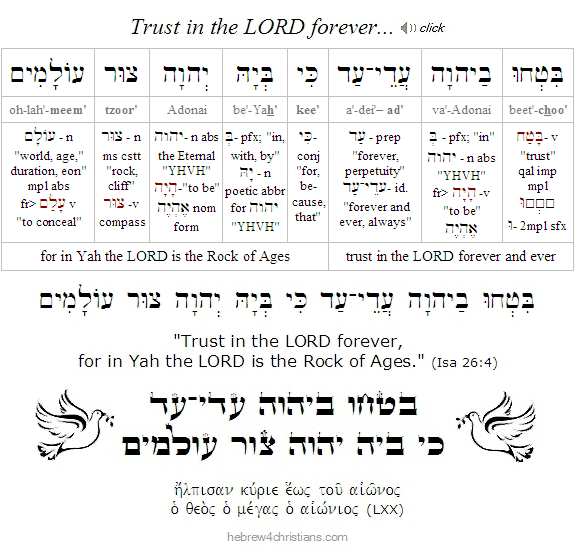
Breath Prayers...

01.11.18 (Tevet 24, 5778) In times of severe testing people often do not need further teaching, but rather "endurance," or what the New Testament calls hupomone (ὑπομονή), a word that means "remaining [μένω] under [ὑπο]" the Divine Presence while being tested. Suffering people do not need moral platitudes from others, but only the will to believe, the resolution to stay constant, and to ability breathe out simple prayers for help to the LORD: "God have mercy..." "Help me, O God..." "I need Thee, O Lord..." When we receive grace to faithfully suffer, we hear the Spirit whispering back to us: "Be not afraid..." "Live in me..." "Walk in the light..." "I am with you always..." "You are loved..."
רְפָאֵנִי יְהוָה וְאֵרָפֵא
הוֹשִׁיעֵנִי וְאִוָּשֵׁעָה כִּי תְהִלָּתִי אָתָּה
re·fah·ei'·nee · Adonai · ve·ei'·rah·fei
hoh·shee·ei'·nee · ve·ee·vah·shei'·ah · kee · te·heel·lah·tee · ah'·tah

"Heal me, O LORD, and I shall be healed;
save me, and I shall be saved, for you are my praise."
(Jer. 17:14)

Download Study Card
Faith in Suffering...

01.11.18 (Tevet 24, 5778) When I feel hopeless, I seek hope; when in pain, I cry for comfort; when in despair over besetting sins, I yearn again for a place I can call home... In the midst of these things, my heart wonders whether my suffering has come because I deserve it or somehow "need" it. I reason that it may make sense that God extends special care for his godly ones, for those who are righteous and who seem free from the vexation of despair, but does it make sense for me, one who is undone, broken, alone, and unworthy? My heart protests that this is not the whole story of my life, and that more to be said. I need God and I know that he cares for me. I recall his promises to heal us, to bind up the broken of heart, and extend his comfort for our afflictions. Might pain herald the advent of something new to come? Might there be a deeper beauty and surpassing good as we go "through the wound" instead of objecting to it? Deep within I discover that I can bless the Lord, losing sight of myself as I affirm my deepest purpose and heritage: "My (boundary) lines have fallen to me in pleasant places; indeed, my inheritance is beautiful to me" (Psalm 16:6). Though I might have felt bereft and even tempted to curse my estate, by God's grace I am made able to give thanks and to bless, even in the midst of my troubles and pain: "I will bless the LORD who has counseled me; my conscience disciplines me in the night" (Psalm 16:7). Therefore שִׁוִּיתִי יְהוָה לְנֶגְדִּי תָמִיד - "I have set the Lord always before me" – especially in desperate moments when I can barely endure – and I have learned that "because he is at my right hand, I shall not come undone" (Psalm 16:8). God gives me strength to renew my hope: "my heart rejoices, my whole being rejoices, and my body rests in trust" (Psalm 16:9).
שִׁוִּיתִי יְהוָה לְנֶגְדִּי תָמִיד
כִּי מִימִינִי בַּל־אֶמּוֹט
shiv·vi·ti · Adonai · le·neg·di · ta·mid
ki · mi·mi·ni · bal · e·mot

"I have set the LORD always before me;
because he is at my right hand, I shall not be shaken."
(Psalm 16:8)

Hebrew Study Card
The verb translated "I have set" in this verse is piel, that is, intensive... We must intently focus our mind and heart to regard ourselves as in the Presence of God; we must sense His eye upon us and "know before Whom we stand." The sages say that when David wrote these words, he was referring to the scroll of Torah which he kept tied to his arm (shel yad). King David literally "set" the Word of the LORD upon his right hand to help him keep focused.
Spiritual Cardiopathy...

01.11.18 (Tevet 24, 5778) One symptom of "sklerocardia," that is, the condition of having a "hard heart," is unwillingness to be grateful for the gift of life and its various blessings. Such inner hardness desensitizes the soul, making us feel numb inside... People today tend to be thankless, intolerant, self-willed, and so "full of themselves" that they suppose they are doing God a big favor just by being alive. They proudly assume they are always right, and therefore they convince themselves that life "owes" them something. Such thinking resembles the arrogant character of Pharaoh, who took for granted all that he had as if it somehow was his "by right." In Hebrew, gratitude is called hakarat tovah (הַכָּרַת טוֹבָה), or the "recognition of the good." It is an openhearted attitude that appreciates each moment of life as a gift to be valued. Hardness of heart can make us "forget" to see, understand, hear, and remember the truth of God in our lives (Mark 8:17-19). When we are filled with anxiety or fear, for example, we are forgetting the truth and risk hardening our hearts.
Of course it is often a struggle to be a "joyful sojourner" in this dark and tragic world, and the temptation is to make ourselves numb inside. We must first of all be honest with ourselves. If we wrestle with our own hardness of heart, we must be careful to refuse despair, since despair hardens the heart even further... Instead, we must consciously recall that the LORD is merciful and gracious, slow to anger, and abounding in steadfast love and faithfulness (Psalm 103:8; 116:3-5). Keep faith that God alone can (and will) change our hearts to more resemble the inner life and character of Yeshua. Let's keep trusting for that and ask God to do this miracle for each of us, for the sake of the glory of His Name.
Pride's Hard Lessons...
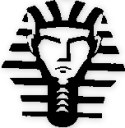
[ The following is related to this week's Torah reading, parashat Va'era... ]
01.11.18 (Tevet 24, 5778) The tragic story of Pharaoh reminds us how pride can blind the heart. As Abraham Heschel said, "In a controversy, the instant we feel anger, we have already ceased striving for truth and have begun striving for ourselves." The truth needs no defense. If we find ourselves getting defensive or hostile, we need to take a step back and ask ourselves what we really believe... If we seek to use truth as a weapon, or as a means to rationalize our self-will, then we are not "in the truth," even if our facts in the matter may be correct. We must be careful not to find ourselves using the truth for our own agenda. Yeshua's words haunt the heart: "Without me you can do nothing" (John 15:5).
Kierkegaard notes: "The proud person always wants to do the right thing, the great thing. But because he wants to do it in his own strength, he is fighting not with man, but with God." Indeed, how many people seek visions, dreams, and private prophecies while they forsake the Spirit as it broods over the hearts of those around him or her? How many seek to "know God" as a matter of the pride of heart?
לִפְנֵי־שֶׁבֶר גָּאוֹן
וְלִפְנֵי כִשָּׁלוֹן גּבַהּ רוּחַ
lif·nei · she·ver · ga'on
ve·lif·nei · khi·sha·lon · go·vah · ru·ach

"Before destruction there is pride;
and before stumbling there is a haughty spirit."
(Prov. 16:18)

Hebrew Study Card
The Koretzer Rebbe was asked for instruction how to avoid sin. He replied, "Were you able to avoid offences, I fear you would fall into a still greater sin - that of pride" (Hasidic). The antidote to pride is the "fall of the soul," that is, those besetting sins and painful failures that (hopefully) bring us back to reality - namely, to the place of brokenness and our need for divine intervention... When we get "sick of our sickness" we enter into holy despair, and then the cry of the heart for lasting deliverance can be truly offered.
First things First...

01.11.18 (Tevet 24, 5778) Why did the Eternal One create a solitary man upon the earth, and not a group of people? To teach that each of us is esteemed by our Creator as "olam malei" (עוֹלָם מָלֵא), an entire world, just as every hair on your head is indeed numbered (Luke 12:7). In other words, we must first find our identity and presence in relationship with God before we can truly relate to others in the world (Matt. 6:33).
And this explains why God Himself must take our place for the alienation we have caused by our sin. The cross is God's means of "turning back" to the sinner. Only God can save us because God created us b'tzelem Elohim, to be like Him, with the significance of "an entire world." The Love of God doesn't deny pain, brokenness, or evil but finds its remedy...
The Madness of Pharaoh...
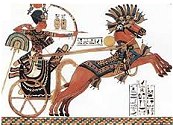
01.11.18 (Tevet 24, 5778) In parashat Va'era, Moses confronts Pharaoh and repeatedly demands that the Israelites be set free to serve the LORD. Over and over Pharaoh refuses, with the Torah commenting "vayechezak lev" (וַיֶּחֱזַק לֵב), that he "hardened his heart." Note, however, that this phrase contains the word chazak (חָזָק), "strong," which indicates that Pharaoh "strengthened" his heart, or steeled his resolve not to question his convictions -- a decision that led him to increasingly deny reality. We can learn from Pharaoh here. Sometimes our habitual decisions and self-assured opinions can blind us to what is really happening, and the momentum of such repeated decisions can begin to enslave our thinking. After each of the first five plagues, Pharaoh "hardened his heart," but thereafter the Torah states that the LORD hardened the heart of Pharaoh (וַיְחַזֵּק יְהוָה אֶת־לֵב פַּרְעה). In other words, God "gave him up" by ratifying his arrogant decisions, and Pharaoh then lost control of his own fate. In the end he destroyed himself because he was unwilling to humble himself by honestly questioning the assumptions he used to justify his life...
Personal Update: I have been feeling really sick the last few days with severe stomach cramps and nausea, perhaps from some sort of food poisoning. Your prayers are appreciated.
Halfhearted Turning...
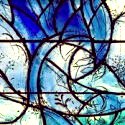
[ The following entry is related to our Torah reading for this week, Parashat Va'era... ]
01.10.18 (Tevet 23, 5778) How many people want God to "save them" so that they can continue to live life on their own terms? How many try to bargain with God, offering conditional surrender and half-measures? When Moses' prayer was answered [regarding the end of the plague of frogs], Pharaoh initially changed his mind but then hardened his heart once again (see Exod. 8:12-15). The Midrash Rabbah comments: "That is the way of the wicked: when they are in trouble they cry out to God; when they have respite, they return to their evil ways." The example of the Pharaoh reminds us to cry out to God at all times, lest we likewise return to our evil ways. It also teaches us to be grateful for our afflictions, for they remind us of how much we need God's help... Carnal human nature is never reformed but is rather crucified, buried and forever left behind (Gal. 5:24).
Hardness of Heart...

[ The following entry is related to this week's Torah reading (Parashat Va'era) and the theme of freedom. Please read the Torah portion to "find your place" here. ]
01.09.18 (Tevet 22, 5778) "I will harden Pharaoh's heart, and though I multiply my signs and wonders in the land of Egypt, he will not heed..." (Exod. 7:3-4). A hardened heart is unfeeling, numb, and therefore unable to spiritually hear or see (Isa. 44:18). Pharaoh's pride and anger made him cruel, oblivious to the suffering of others, both deaf and blind to the pain even of his own obstructed heart. He became his own worst enemy, a prisoner of his own making, a slave to his own pretense and fearful delusions. And so it is with unregenerated human nature that demands to be the center of attention and that stubbornly refuses to submit to God's authority over the bounds of the selfish ego. "God leads men along a path which they themselves choose. If a man wants to be good, God leads him toward goodness; if he wants to travel an evil road, God helps him do that, too." As it says, "The heart of a man plans his way, but the LORD directs his steps."
לֵב אָדָם יְחַשֵּׁב דַּרְכּוֹ
וַיהוָה יָכִין צַעֲדוֹ
lev · a·dam · ye·cha·shev · dar·ko
va'Adonai · ya·khin · tza·a·do

"The heart of man plans his way,
but the LORD directs his steps."
(Prov. 16:9)

Download Study Card
Proverbs 28:14 says, "Happy is the man who fears always, but the one who hardens his heart will fall into evil." If we find ourselves opposing God, our punishment might be prolonged through the process of hardening, though with God's mercy this hardening may lead to a genuine sense of brokenness and despair -- i.e., the realization that the strength of own self-sufficiency is proven to be of no avail. Turning to the LORD in despair of ourselves is a mark of humility. When we are emancipated from ourselves, we are delivered from pride and thereby enabled to confess our need for God's help... This is a miracle, since the "little Pharaoh inside" always clamors to be the center of attention and refuses to submit to the Presence and authority of the LORD.
Note: The Torah teaches that the universe was not caused but created, and therefore creativity, freedom, and personhood are at its essence. We are not victims of an impersonal machine; God did not "wind up" the universe and to let it run unsupervised. And even if we should undergo tribulation in this world we are made "more than conquerors" (ὑπερνικῶμεν, lit. "hyper conquerors) through the power of the Eternal One that loves us (Rom. 8:37). For some further thoughts on the paradox of "free will" and the divine decrees, see the related article, "Hardening of Heart."
The Name of God...

[ The following entry is related to this week's Torah reading (Parashat Va'era). Please read the Torah portion to "find your place" here. ]
01.09.18 (Tevet 22, 5778) While the Name of God, YHVH (יהוה), means "Presence" (Exod. 3:13-14), "Breath" (Gen. 2:7; Num. 16:22), "Life" (Deut. 30:20), and "Love" (Exod. 34:6-7), it also means "Faithfulness," the One who keeps His promises. YHVH means that "He was (i.e., hayah: היה), He is (i.e., hoveh: הוֶה), and He always will be (i.e., veyihyeh: וְיִהְיֶה)," which means He is ever present and not restricted by time or space. Moreover, God is called havayah (הֲוָיָה) which means He is continually sustaining creation by the Word of His power: "In Him we live, move, and have our being" (Acts 17:28; Heb. 1:3). Unlike mortal men who are limited by time and may be unable to keep their promises because of weakness, infirmity, or death, the LORD is the Eternal One and no power can ever prevent Him from keeping His promises to you. Therefore do we say, בָּרוּךְ הוּא וּבָרוּךְ שְׁמוֹ - Barukh hu u'varukh shemo, "Blessed be God and blessed be His Name."
Note: A word the Torah sometimes uses for "desire" or "will" is avah (אָבָה), which becomes the word "love," i.e., ahavah (אַהֲבָה), only when God's Spirit (ה) is made part of the will. Rambam therefore explains אֶהְיֶה אֲשֶׁר אֶהְיֶה, ehyeh asher ehyeh, "I shall be as I shall be" (Exod. 3:14) to mean, "I shall be with those who desire that I shall be with them." In other words, though the LORD is always present, He awaits for us to express our desire for Him, to make a decision to let him in, so to speak (Rev. 3:20).
Slavery of Passivity...

01.09.18 (Tevet 22, 5778) From our Torah portion this week (i.e., parashat Va'era) we read, "I will bring you out from under the burdens of the Egyptians" (Exod. 6:6). The sages say the Hebrew word for "burdens" (סִבְלת) used in this verse can also be read as passivity (סְבִילוּת): "I will deliver you from passivity toward your slavery...." So long as the people regarded their enslavement as tolerable, they could excuse it, rationalize it, and even defend it. Therefore God allowed tribulation to progressively increase so that the people would understand their great need. Likewise we cannot even begin to understand our need for deliverance as long as we are comfortable, numb, and dead inside... Indeed the very worst kind of slavery is to be unaware that you are, indeed, in bondage. The first step toward moral freedom, then, is to be set free from our denial, to wake up, to resist evil, and to find faith that God desires something better for our lives.
Inevitability of Tradition...
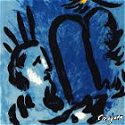
01.08.18 (Tevet 21, 5778) It has been a common experience of mine over the years to encounter certain people who believe they are somehow immune from the influence of "tradition" in their lives, and that they are therefore able to transcend its effect and provide unbiased interpretations of the Scriptures... Well, on the contrary, it's important to be humble regarding this matter and to understand how radically we are influenced by the past. After all, we are historical creatures rooted in a particular culture, endowed with a specific heredity and unique genetic code. We subconsciously inherit norms, customs, ceremonies, decorum, routines, patterns of speech (e.g., accents), right "from our mother's knee." In short, our use of language itself -- the way we describe seeing, hearing, tasting, feeling, etc. -- is based on customary forms of conventional usage. The bottom line seems to be that we are products of our culture from the moment we take our first breath in this world... Tradition -- of some kind or another -- is simply an inescapable and omnipresent fact of our existence.
Whenever I mention "midrash" or quote something noteworthy from the Talmud, some misguided people get into a frenzy, accusing me of teaching "traditions of men" and so on. To them I reply, "Not so fast; Have you seriously understood that "tradition" - rightly understood - is essential to our lives, because without it we would be unable to understand even the first word (or even letter) of the Scriptures? There is a story that illustrates this point. A pagan came to Hillel seeking to convert to the faith in the LORD but was troubled with the idea of tradition, though he accepted the idea of the written Scriptures. Since the man did not know how to read Hebrew, however, Hillel began pointing to the letters in the written Torah to teach him the alphabet: "This is Aleph... this is Bet... this is Gimmel," and so on, until the man began to understand the letters of the Aleph-Bet. "Now come tomorrow, and I will teach you more." The next day, Hillel pointed to the exact same letters but reversed their names, "This is Gimmel... this is Aleph... this is Bet," and so on. The convert was confused: "But yesterday you said just the opposite!" Hillel replied, "Now you have had your first lesson. You see that the written word alone is insufficient, and we need the tradition to explain God's Word." Another way to make this point is to say that the Torah was not revealed along with a dictionary that defines the meaning of its words...
All this is said to remind us that the transmission of Torah from generation to generation demands that we trust. Indeed the very concept of "Torah" (or Scripture) is bound up with trust and community... This is true of the written word (i.e., trusting in scribal traditions that preserved the Scriptures for us), as well as the oral word (i.e., the customs, interpretations, translations, and wisdom that explain the meaning of the words themselves). Knowledge has been defined as "justified true belief," which implies that there can never be knowledge without trust. It is ludicrous to think that we can translate the Scriptures in a vacuum - all by ourselves without any help from others... We must humble ourselves and become "like little children" to learn from those who have gone before us, and this is why the Jewish value of Talmud Torah - teaching children the words and values of Torah - is regarded as so important. As the Talmud puts it, "The world exists because of the breath of the schoolchildren who study Torah" (Shabbat 119b).
But what about the words of the Holy Scriptures? Don't they transcend cultural factors? Are they not timelessly true and exempt from culturally conditioned ways of reading them? Hardly. Both Christianity and Judaism (as opposed to some other religions) do not worship a "book" that "floated down" from heaven complete with chapters and verses. Nor do we believe in a "divine dictation" theory that claims the Scriptures are "Xerox" duplicates of the words spoken by an angel or other divine being. No, the Scriptures are regarded as the products of history -- sacred history, of course -- but history nonetheless. Therefore we have the same problems trying to discern the meaning of the Scriptures as we do for any other type of literature: Who was the original author and the intended audience? What were the cultural circumstances? Why was this written? What kind of writing is it? Is it a poem (like a psalm), or perhaps an instructional maxim (like a proverb)? Am I reading an historical account, a description of a religious ritual, or something else? First we must know what we are reading - and to understand its historical context. Ignoring this simple rule leads to all sorts of errors in our reasoning and makes us unwitting victims of our own cultural biases. We will find ourselves "reading into" the Scriptures things that just aren't there, chaverim!
Regarding the literal words of the Scriptures, it's important to remember that the decisions made regarding which scrolls were "canonical" (and therefore to be included in our modern Bibles) came from the decisions made by earlier faith communities -- just as such decisions likewise preserved the sanctity of the sacred texts themselves. For instance, without the Jewish scribal transmission known as the masorah (מָסוֹרָה), it's unlikely we would know how to read and interpret many passages of Scripture today (Christianity also has its own scribal traditions that preserved the transmission of the Greek New Testament). Original Hebrew did not include vowel markings or other punctuation. Neither did the Greek of the New Testament, for that matter. Indeed, we can only understand the message of our faith through the medium of historical continuity, tradition, and ongoing dialog.... This was true even in the days of Yeshua, who endorsed the traditional tri-fold division of the Jewish Scriptures (the Law, Writings, and Prophets - Luke 22:44) and relied on Jewish tradition to teach great truths about his message (e.g., he associated the Passover seder with the "Last Supper" rituals of the New Covenant; he called himself Living Water and the Light of the world during Sukkot, and so on.) Yeshua placed high value on the "jots and tittles" of the texts of Scripture that were part of the spiritual heritage of his day (Matt. 5:18).
But didn't Yeshua condemn the "traditions of men" in His day? Didn't he reject the traditions of the elders of Israel (Mark 7:5-13)? Didn't he rhetorically ask the religionists of his day, "Why do you break the commandment of God for the sake of your tradition" (Matt. 15:2-10)? Yes he did, but it's important to understand the historical context of these sorts of statements. First, he was certainly not condemning "true traditions" that are outlined in the Scriptures themselves. Yeshua's entire ministry was predicated on the "appointed times" of the LORD and their fulfillment in him. "Do not think that I have come to abolish the Law or the Prophets; I have not come to abolish them but to fulfill them" (Matt. 5:17). No, what Yeshua appeared to take issue with was the dogmatic interpretation of various aspects of ritual law and with the practice of "building of fences" around the original intent of the Scriptures. These man-made "fences" (gezerot) actually created a gilded cage around the Scriptures and effectively relocated the source of authority to the self-styled religious interpreters of the day... This was the crux of the disagreement between Yeshua and the Pharisees. (For more about this, see "The Heart of the Law; the Law of the Gospel".)
We all live by hours of the day, days of the week, seasons of the year, and God has revealed cycles and patterns of community life for Israel. Indeed, the mo'edim (festivals and appointed times) of the LORD are rooted in history and have prophetic implication for our lives. The "traditions of the elders" which Yeshua condemned had more to do with hidebound interpretations of the Scriptures (later embodied in the "Oral Law") than with the idea of tradition itself. The Greek word for "tradition" (παράδοσις) is a neutral term, simply meaning "handing down" (from παρά (down, from) + δίδωμι (to give)) what was given before. Both Judaism and Christianity hold to an "oral tradition" following the ministries of Moses and Yeshua, respectively. Because of the imminent expectancy of the return of Yeshua after His resurrection, the gospels were not committed to formal writing until the prospect of the death of the eyewitnesses loomed large. Moreover, there were numerous Gospel accounts which were eventually compiled into a standardized retelling of the story (Luke 1:1-4). In Jewish tradition, Moses received the written law at Sinai, but this cannot be understood in a vacuum. For instance, the details about how to construct the furnishings of the Tabernacle are not given, and the written law even endorsed the establishment of "judges" to interpret case law and establish precedent. Likewise the Apostle Paul admonished, "Therefore, brethren, stand fast, and hold the traditions (παράδοσις) which ye have been taught, whether by word, or our epistle" (2 Thess. 2:15, 1 Cor. 11:2). Indeed, in a New Testament sense, "tradition" refers to the Apostolic teaching in general, as well as the valid inferences from the Tanakh that are thereby implied (2 Tim. 3:16, Matt. 13:52).
There is legalism -- i.e., the idea that we are duty bound to perform certain rituals, behave a certain way, follow a set of rules, etc., and there is the liberty we enjoy as the heirs of God. There is a higher way of understanding the same thing -- namely understanding as an adult rather than as a child. Apprehending your identity as a son (or daughter) of the LORD God of Israel makes you no longer an outsider, a "child," an "outcast," etc., to the covenantal obligations and promises given to the Jewish people. As a co-heir and fellow member through adoption into the household of God, you are a new creation. Being a Jew is a matter of having a new heart, chaverim (Rom. 2:28-29).
Note: Please don't let any of this shake your faith, friends. We believe in the providential hand of God who so moved the prophets and teachers by the Ruach HaKodesh to preserve the truth handed down to us... There is empirical evidence for the historicity and veracity of our faith, though ultimately we rely on revelation from God to give us the light we need to see... For more on this topic see: "The Role of Tradition" and "Remembering our Roots."
Knowing the Name...
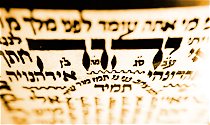
[ The following is related to our Torah reading for this week, Parashat Va'era... ]
01.08.18 (Tevet 21, 5778) From our Torah portion this week we read that God said to Moses: "I appeared (וָאֵרָא) to Abraham, Isaac, and Jacob as El Shaddai (אֵל שַׁדָּי), but by my name the LORD (יהוה) I did not make myself known to them" (Exod. 6:3). Here we are faced with a puzzle, since the Torah clearly states that God revealed Himself as YHVH to the patriarchs. For example, to Abraham God said, "I am the LORD (אֲנִי יְהוָה) who brought you out of Ur of Kasdim" (Gen. 15:7), and to Jacob he said: "I am the LORD (אֲנִי יְהוָה), the God of Abraham your father and the God of Isaac (Gen. 28:13). In light of this, how then do we make sense of God's statement that He was not known as YHVH to the patriarchs?
The traditional explanation is that God was stating that the patriarchs had not directly experienced His mastery over creation through the signs and wonders He would perform as Israel's Savior and Redeemer. The patriarchs understood God as El Shaddai (אֵל שַׁדַּי), the all-sufficient One who nurtured the fledgling nation and who foretold Israel's future (Gen. 17:1-2; 28:3; 35:11), but Moses (and the Israelites) would now know God's attributes of covenantal faithfulness (chesed) as the "Promise Keeper" by directly witnessing his saving acts. Indeed, the Name YHVH implies that God is the Faithful One, since the name is formed by permutating the letters of the Hebrew root "to be": hayah (was), hoveh (is), and yihey (will be), which implies there is no power that can prevent God from fulfilling His promises. YHVH is Lord of lords and King of kings whose word can never fail (Deut. 10:17; Dan. 2:47). Ein od milvado (אֵין עוֹד מִלְבַדּו): "there is no power apart from Him" (Deut. 4:35,9).
The name "ehyeh asher ehyeh" (אֶהְיֶה אֲשֶׁר אֶהְיֶה) means "I shall be as I shall be," that is, "I shall be with those who desire that I shall be with them. I reveal myself to those who seek for me, and as I am sought, so I will be found. According to your faith be it done unto you: Blessed are they that hunger and thirst for righteousness, for they shall be filled..."
For more on this subject, see the article: Yeshua and YHVH.
Note: The question of the Name of God is raised both in last week's Torah portion (Shemot), where Moses asked God's Name to validate his mission to Israel, and again in this week's portion (Va'era), where God made the puzzling statement that the patriarchs did not know God's Name as YHVH (יהוה). The entire question of God's name resolves to be a question about our ability to understand the very heart of God more than anything else (it's a matter of Who, not What). This is demonstrated by the fact that the name YHVH (יהוה) was revealed yet again to Israel only after the sin of the Golden Calf, when Moses learned that it meant Compassion and Grace (see Exod. 34:6-7). This second revelation of the Name foreshadowed the New Covenant to come. Indeed the full meaning of God's name was revealed in the last gasp of Yeshua as He died upon the cross for our atonement: ἐξέπνευσεν - "he breathed out," the great exhalation of all that he came to be for us... (Mark 15:37).
From the Midst of the Thorns...
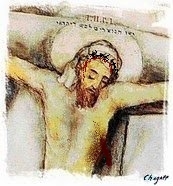
01.08.18 (Tevet 21, 5778) Why did the LORD, the Holy One, reveal Himself to Moses out of the midst of a lowly thorn bush, and not some grand tree? God lowered himself to speak from within the bush, as it is written: "For though the LORD be high, he regards the lowly" (Psalm 138:6); and "I will be with him in trouble" (Psalm 91:15). The midrash imagines God saying to Moses: "Don't you feel that I suffer anguish whenever Israel does? Know, therefore, from the character of the place from which I speak, out of the thorn bush, that I, as it were share their suffering" (Shemot Rabbah 2:7). God speaks to us from the place of thorns – even those about his own head – words of great comfort and deliverance. From the midst of the fire (בְּלַבַּת־אֵשׁ מִתּוֹךְ הַסְּנֶה), within the lowliest of places, covered in the thorns of our sin and shame, Yeshua speaks words of healing love. Bless his name forever!
New Pharaoh's Dream...

01.08.18 (Tevet 21, 5778) According to midrash, just as the Pharaoh during the time of Joseph was troubled by his dreams (Gen. 41:1-7), so was the "new king" that arose during the time of Moses. In the new Pharaoh's dream, an old man was standing before him as he sat on his throne, holding a balance in his hand. The old man placed all the nobles and governors of Egypt on one side of the balance, and on the other side, he placed one small lamb. To Pharaoh's astonishment, however, the lamb outweighed all the leaders of Egypt! When the king asked his advisors to interpret the dream, they said it foretold of a coming king who would overthrow the kingdom of Egypt and set the Israelites free. This coming one would excel in wisdom and his name would be remembered forever as the Savior of Israel.
Of course the rest of the Book of Exodus is essentially God's interpretation of the new Pharaoh's dream, as the great events of the Exodus would reveal. The LORD God of Israel forewarned this king that Egypt would come into judgment by the Lamb of God... Indeed, the only way to escape this judgment and the wrath of God was by being covered by the sacrificial blood of the lamb... The Lamb of God is central to Israel's deliverance and becomes the focal point of the revelation of the sanctuary later given at Sinai.
Israel was redeemed from Egypt by trusting in the promise of their deliverance, as it is written, "and the people believed" (וַיַּאֲמֵן הָעָם) ... and bowed their heads and worshiped" (Exod. 4:31). Recall that the blood of the korban Pesach - the Passover lamb - was to be smeared on the two sides and top of the doorway, resembling the shape of the letter Chet (ח). This letter, signifying the number 8, is connected with the word חי (chai), short for chayim (life). The blood of the lamb (דַּם הַשֶּׂה) not only saves from the judgment of death, but it also is the means of imparting divine life and power...
Removing your Shoes...

01.08.18 (Tevet 21, 5778) We live in the midst of a mysterious universe filled with astounding wonder and vast complexity, from the smallest of subatomic particles to the largest of cosmic events... If we could really see, if our eyes were truly open, we would understand that the universe and everything in it is filled with God's glory (Psalm 19:1). Where it is written, "Remove your shoes, for the place you are standing is holy" (Exod. 3:5) means we are to remove the deadness of our unreflective habits, those routine ways of "sightless seeing" that insulate us and hide us from the astonishment of reality. "Holy, holy, holy is the LORD of hosts; the whole earth is full of his glory!"
קָדוֹשׁ קָדוֹשׁ קָדוֹשׁ יהוה צְבָאוֹת
מְלא כָל־הָאָרֶץ כְּבוֹדוֹ
ka·dosh · ka·dosh · ka·dosh · Adonai · Tze·va·ot,
me·lo · khol · ha·a·retz · ke·vo·do

"Holy, holy, holy is the LORD of hosts;
the whole earth is full of his glory!"
(Isa. 6:3)

Download Study Card
The LORD is the Source of all existence. This is implied in the Name YHVH (יהוה) itself, which comes from the Hebrew verb "to be" (hayah), and therefore God is called ha-hoveh, ve'hayah, ve'yavo (הַהוֶה וְהָיָה וְיָבוֹא) - "the One who is, and was, and is to come" (Rev. 4:8). God first defined His essential Name to Moses as ehyeh asher ehyeh (אֶהְיֶה אֲשֶׁר אֶהְיֶה), "I AM that I AM," abbreviated simply as ehyeh (אֶהְיֶה), "I AM" (Exod. 3:14). This "threefold" Name of the LORD of Hosts encompasses all possible states of being, so that of the LORD alone it is said, melo kol ha-aretz kevodo: "the whole earth is full of his glory" (Isa. 6:3).
"Out of all this world, take this forest; out of all the forest, take this tree. Out of all the tree, take this branch. Out of all the branch, take this leaf. And on this leaf that is like no other, observe this drop of rain that is like no other. And on this single drop observe the reflection of leaves and branches, of the entire tree, of the forest and of all the world - then only will you see the stars beyond the light of day." - James Kirkup
Again, why did God choose to reveal himself to Moses in the midst of a common thornbush (הַסְּנֶה)? To teach us that there is no place devoid of the Divine Radiance, not even the lowly thornbush. Indeed the midrash asks, 'Where is God?' and then cites where Torah says, 'I will stand before you there' (Exod. 17:6), which is to say, in every place where you find a trace of footsteps, there I AM. As Elizabeth Browning wrote, "Earth is crammed with heaven; and every bush afire with God; but only he who sees takes off his shoes." May the LORD open our eyes and help us not be sightless among His miracles...
Parashat Va'era - וארא

[ A new audio summary of the Torah portion can be downloaded using the links below. ]
01.07.18 (Tevet 20, 5778) Last week's Torah portion (Shemot) told how Moses and Aaron were commissioned to go before Pharaoh and deliver the God's message: "Let my people go, that they may hold a feast to me in the desert." Not only did Pharaoh dismiss the request, but he imposed even harsher decrees against the Israelites and caused them to suffer miserably. Moses then appealed to the LORD, who reassured him that Pharaoh would eventually relent because of "the greater might" of God's power to deliver His people.
In this week's portion (Va'era), the LORD told Moses that He was now going to fulfill His promise to Abraham, Isaac, and Jacob by giving the Israelites the land of Canaan, and that he had heard the "groaning of the people of Israel whom the Egyptians held as slaves" (Exod. 6:5). The showdown between the LORD (יהוה) and the so-called gods of Egypt was imminent, and God therefore encouraged the people with precious promises: "I AM the LORD (אֲנִי יְהוָה) and I will bring you out from under the burdens of the Egyptians, and I will deliver you from their bondage, and I will redeem you with an outstretched arm and with great judgment; and I will take you to me for a people and I will be to you a God" (these are the "four expressions of redemption" we recite during the Passover Seder every year).
Despite these wonderful promises, however, the people were unable to listen because of their "shortness of breath" (מִקּצֶר רוּחַ) on account of their harsh slavery. The LORD then told Moses: "Go in, tell Pharaoh king of Egypt to let the people of Israel go out of his land," and the great showdown between the LORD and the gods of Egypt began. However, even after repeatedly witnessing the series of miraculous plagues issued in the Name of the LORD, the despot remained proud and unmoved, thereby setting the stage for the final devastating plagues upon the land of Egypt and the great Passover redemption of Israel.
Shalom and good upon you... Shanah tovah and may we all have great joy and strength as we continue reading a Sefer Shemot for this week. Shavuah tov!
The Way of Faith...

01.05.18 (Tevet 18, 5778) An implication of genuine faith in the LORD is the realization that your life is a sacred trust and therefore everything matters... Nothing is trivial; nothing is inconsequential. In the world to come you will be shocked to understand that everything you thought, everything you said, and everything you did was given to you from above, and therefore has tremendous significance (Matt. 12:36-37). Indeed, your entire life is on loan from heaven itself. Therefore "seek first the kingdom of God and His righteousness..." (Matt. 6:33). Faith invests all of the heart to the journey at hand; it seeks God's presence in all things and trusts God in all its ways (Prov. 3:5-6). "The present form (τὸ σχῆμα) of this world is passing away" (1 Cor. 7:31), and the heart of faith looks for a city whose designer and builder is God Himself (Heb. 11:10). "So we do not lose heart... For the things that are seen are turning to dust, but the things that are unseen endure forever" (2 Cor. 4:16-18).
בְּטַח אֶל־יְהוָה בְּכָל־לִבֶּךָ
וְאֶל־בִּינָתְךָ אַל־תִּשָּׁעֵן
בְּכָל־דְּרָכֶיךָ דָעֵהוּ וְהוּא יְיַשֵּׁר ארְחתֶיךָ
be·tach · el · Adonai · be·khol · lib·be·kha
ve'el · bi·na·te·kha · al · tish·a·en
be·khol · de·ra·khe·kha · da·ei·hu · ve·hu · ye·ya·sher · or·cho·te·kha

"Trust in the LORD with all your heart,
and do not lean on your own understanding.
Know Him in all your ways, and He will straighten your paths."
(Prov. 3:5-6)

Hebrew Study Card
"Know Him in all your ways," that is, in all that you put your hand to do look for the Divine Presence and guidance (1 Cor. 10:31). As King David stated, "I have set the Lord always before me, because He is at my right hand, I shall not be moved" (Psalm 16:8). The very first step of the journey is to find hope, and every subsequent step is marked by hope's comfort. Therefore keep moving forward and don't look back. Yeshua warned us that the person who puts his hand to the plow and then turns back is not fit for the kingdom of heaven (Luke 9:62). Keep focused on what is most essential; guard yourself from the world and its varied distractions. Make a place within your heart for the Divine Presence; find a quiet moment to listen for God's comfort. Trust that God is on the road ahead for you; believe that God foresees your way and prepares a place for you. Ask for guidance from the Lord: "Cause me to know the way I should go, for I lift up my soul to you..." (Psalm 143:8).
King David prayerfully wrote, "You have said, 'Seek my face,' and my heart says to you, 'Your face, LORD, do I seek'" (Psalm 27:8). This is the "antiphon" of the great Shema: God calls us to hear His Voice, so we are right to earnestly ask Him to be divinely enabled to hear what the Spirit is saying. Shabbat Shalom and love to you all, chaverim. May the Spirit of the LORD rest upon you and give you God's healing peace. Amen.
The Message of Loneliness...

01.05.18 (Tevet 18, 5778) Instead of regarding loneliness as an insufferable wound that deprives us of intimacy from others, we must learn to find our sense of belonging and place within the heart of God. Striving to dispel loneliness can entice us to lose ourselves in "olam ha'sheker" (עוֹלם השׁקר) -- the world of falsehood with its superficial satisfactions. Indeed, if we impatiently attempt to overcome the pain of loneliness by means of false connections with others (including religious connections), we suffer further loss and our despair grows deeper still, since our hunger for belonging is an inner cry for an unconditional love that only God can truly provide. God created Adam alone as "olam malei" (עוֹלָם מָלֵא), an entire world, to teach him that his need for connection must first be met in the Divine Life. Each soul is created with a radical sense of "aloneness," since - despite our closest relationships with other people - each of us comes into this world alone and will die alone... This sense of aloneness is a built in "hunger" for connection with God's presence. On the other hand, when we look to others to meet our need for God, we invariably fall into the chaos and destruction of idolatry. To be healed from our counterfeit need we must "go through the wound" of our inner emptiness to find the divine consolation, and from there we will be given the heart to give of ourselves freely and without ambiguity. May the comfort and consolation of God so move our hearts to cry out: mi li vashamayim (מִי־לִי בַשָּׁמָיִם), "Whom have I in heaven but you?" ve'imekha lo chaftzti va'aretz (וְעִמְּךָ לא־חָפַצְתִּי בָאָרֶץ) - "but with you I desire nothing on the earth."
מִי־לִי בַשָּׁמָיִם
וְעִמְּךָ לא־חָפַצְתִּי בָאָרֶץ
mi · li · va·sha·ma·yim
ve·im·me·kha · lo · cha·fatz·ti · va·a·retz

"Whom have I in heaven but you?
And there is nothing on earth that I desire besides you."
(Psalm 73:25)

Download Study Card
Ah Lord, you have given me an incurable wound, a pain that refuses to leave my heart; for mi li va'shamayim? "Whom have I in heaven but you?" And there is nothing on earth that I desire besides you" (Psalm 73:25). I whisper to Thy heart, "You are my Lord; I have no good apart from you," and yet I am bound in this place of lonely exile, pining away in grief... My heart cries, ad-anah Adonai, "How long, O Lord, forever?" Nevertheless I affirm: "My flesh and my heart may fail, but God is the strength of my heart and my portion forever." There is nothing I seek apart from your "with me" Presence, O beloved Savior; therefore be true to your love and bear my way through these trying hours... Amen.
The End of Fear...

01.04.18 (Tevet 17, 5778) The fear of death is not the kind of fear God wants from his children; on the contrary, God wants you to fear His remoteness, to fear being lost to His loving Presence, to fear falling into sin that removes you from true life. Fearing God doesn't mean fearing His punishment for sin as much as fearing that which breaches the relationship He desires to have with you. That is the right "end" or "goal" of fear - to reverently marvel over the great love God has for your soul....
כִּי כִגְבהַּ שָׁמַיִם עַל־הָאָרֶץ
גָּבַר חַסְדּוֹ עַל־יְרֵאָיו
ki · khig·vo·ah · sha·ma·yim · al · ha·a·retz
ga·var · chas·do · al · ye·re·av

"For as high as the heavens are above the earth,
so great is his steadfast love toward those who fear Him"
(Psalm 103:11)

Those who cling to physical life -- who seek survival at all costs -- are liable to lose sight of the deeper meaning of death, and therefore of life itself. If we worship life here on this earth, we risk losing our own souls (Matt. 16:25).
Teshuvah and Waste Places...

[ The following entry is related to this week's Torah reading (Parashat Shemot). Please read the Torah portion to "find your place" here. ]
01.04.18 (Tevet 17, 5778) Forty years before encountering the LORD in the burning bush, Moses was full of himself, a prince of Egypt "mighty in word and deed" who self-consciously regarded himself as Israel's deliverer (Acts 7:22-25). But Moses' "Egyptian-styled" ego led him to regard murder and human uprising as the means of deliverance, and consequently God sent him into exile to think things through... It was there, in the waste places of the desert, that God's education began - the school of brokenness, teshuvah, and heart-listening... Only after this did the LORD appear to him, calling out to the man who had lost all confidence in the flesh. Moses' humility mirrored the emptiness of the desert: "Who am I?" he protested, "I can't do this thing..." (Exod. 3:11). Exactly! Now he understood. Similarly, we must be careful not to regard ourselves as "strong," since the power of the flesh is useless for the purposes of heaven (Zech. 4:6). As it is written, "Thus says the LORD: 'Cursed is the man who trusts in man and makes flesh his strength, whose heart turns away from the LORD. He is like a shrub in the desert, and shall not see any good come. He shall dwell in the parched places of the desert, in an uninhabited salt land" (Jer. 17:5-6). It was only after Moses' question, "Who am I?" was answered by God's "I AM who I AM," that the "useless shrub" became aflame with God's power...
Moses' rod, which he had relied upon for years in the desert as a shepherd, was transformed to be used as an instrument of Divine Power (Exod. 4:1-5). God entrusts the rod of His authority only in the hands of a truly broken man.... Similarly, though Moses was described as a man "mighty in word and deed," these were attributes of the flesh unrefined by the Spirit of God. Therefore, after being humbled in the desert, Moses confessed that he was kevad peh - "heavy of mouth" and kevad lashon, "heavy of tongue," and unable to speak on behalf of the LORD. God then told him that He would "be with his mouth" to teach him what to say (Exod. 4:10-12). This likewise teaches that God entrusts the utterance of his word to the tongue of a genuinely broken man...
Beloved Wretch...

01.04.18 (Tevet 17, 5778) There are days that I feel a bit like that lost dog whose owner posted a sign that said: "Lost Dog with three legs, blind in left eye, missing right ear, tail broken, and recently neutered. Breed unknown. Answers to the name of Lucky."
Afflictions make us "lucky," though most of us begin to understand this only after we've been humbled by our failures. Thank God that that he seeks and saves the lost, the broken, and the unruly... Thank God for Yeshua, "the friend of sinners" (Matt. 11:19). As Margary Williams wrote: "Generally, by the time you are Real, most of your hair has been loved off, and your eyes drop out and you get loose in the joints and very shabby. But these things don't matter at all, because once you are Real you can't be ugly, except to people who don't understand" (Velveteen Rabbit). You might sometimes feel like a wretch, but you are beloved wretch, after all. Take heart that God is not finished working on you, that your change will come, and there is a transformed future and everlasting consolation reserved for you.
Casting your care upon him...

[ The following is related to our Torah reading for this week, Parashat Shemot... ]
01.03.18 (Tevet 16, 5778) "And when she (Yocheved) could hide him no longer, she took for him a basket made of reeds (תֵּבַת גּמֶא) and daubed it with bitumen and pitch. She put the child in it and placed it among the reeds by the river bank" (Exod. 2:3). The sages note that what distinguishes this makeshift "ark" (i.e., teivah: תֵּבָה) from a boat is the absence of a sail or rudder: There is no way to control its direction or outcome... Like Noah's ark, it is a vehicle completely surrendered to God's care. Likewise we must cast ourselves upon the waters of God's mercy and trust that he will guide our way (1 Pet. 5:7).
The Greatness of Empathy...

01.02.18 (Tevet 15, 5778) In our Torah for this week we read: "when Moses grew up, he went out to his people and looked on their burdens" (Exod. 2:11). The sages say, "do not read, 'grew up,' but rather 'became great'" (וַיִּגְדַּל), since Moses chose to experience the exile for himself by opening his eyes to his people's suffering. Indeed Moses was made great as he emptied himself of his royal privilege and identified with the pain and misfortunes of others (Phil. 2:7). As is written: "By faith Moses was made great (μέγας γενόμενος) by refusing to be called the son of Pharaoh's daughter, choosing rather to be mistreated with the people of God than to enjoy the fleeting pleasures of sin" (Heb. 11:24-25).
Concerning this the great Torah commentator Rashi wrote, "Moses set his eyes and heart to feel their anguish." The midrash says that when Moses saw the hard labor of the people, he took their yoke upon him. Indeed some of the earlier sages said that sharing the burden of another is the essence of Torah, the very foundation of all heavenly obligation (Avot 6:6). Therefore the Apostle Paul wrote (Gal. 6:2): "Bear one another's burdens, and so fulfill the Torah of the Messiah (תּוֹרַת הַמָּשִׁיחַ)." Expressing empathy by identifying with the pains of others requires what is called bittul hayesh (בִּטּוּל הַיֵּשׁ), or the setting aside of the ego, which is also the essential requirement for revelation from heaven. Hence Moses was given direct encounter with the Divine Presence because of his great humility.
In order to say, "thy kingdom come, thy will be done" you must let go of your own agenda; your ego must be deposed from its petty little kingdom... Likewise, you can't say, "Come, Lord Jesus" by putting your fear first, or by otherwise demanding that your life should center on your own personal "advent." No, you must consciously choose to live in exile to this world (Gal. 6:14). How can we ever expect the LORD to live out His life through us if we do not genuinely offer our lives to Him? And yet this is exactly the problem of the ego...
A principle of spiritual life is that we descend in order to ascend, or the "the way up is the way down." As Yeshua said, "Whoever would be first among you must be slave of all" (Mark 10:44). Becoming nothing (i.e., ayin) in this world is the condition for seeing something in the world to come. But we become nothing by trusting in the miracle, not by trying to efface ourselves... This is not another venture of the ego. Life in the Spirit means trusting that God will do within you what you cannot do for yourself... We can only take hold of what God has done for us by "letting go" of our own devices (Phil. 2:13). When we really let go and trust, we will become nothing (i.e., klume: כְּלוּם), carried by the Torah of the Spirit of life. The way is not trying but trusting; not struggling but resting; not of clinging to life, but of letting go...
"So-called pious people are unfree. They too lack the authentic certitude of inwardness. That is why they are so pious! And the world is surely justified in laughing at them. If, for example, a bowlegged man wants to be a dancing master but is not able to execute a single step, he is comical. So it is also with the multitudes who are so religious. Often you can hear the pious beating time, as it were, exactly like one who cannot dance but nevertheless knows enough to beat time, yet who are never fortunate enough to get in step. In order to reassure themselves, the pious seize upon grandiose ideas that the world hates. They battle ideas, but not with their lives. Such is the life of those who lack inwardness." - Soren Kierkegaard (Journals)
This is another example of the difficulty of truly trusting God for the miracle, of genuinely receiving the miracle... Some people scorn the idea of "easy believism," though of course there is nothing at all "easy" about exercising true faith in the LORD and living the truth in our lives. We need the miracle; we need grace from heaven to impart real passion for us to walk according to God's heart.
Man of Sorrows...
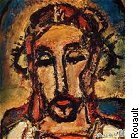
[ The following is related to our Torah reading for this week, Parashat Shemot... ]
01.02.18 (Tevet 15, 5778) The LORD said, "I have surely seen the affliction of my people who are in Egypt and have heard their cry... I know their sorrows" (Exod. 3:7). The grammar here is intense: "seeing I have seen" (רָאה רָאִיתִי). Understand, then, that God surely sees your struggles, friend. Second, know that God heeds the outcry (צְעָקָה) of your heart, and indeed, he interprets your groaning as if it were for the sake of serving him. Your heart's cry is transformed by grace to be the cry for God himself, for relationship with Him. "The cry of the people has come to me," he told Moses (Exod 3:9), which means all the sufferings, the wrongs, the hopes, the fears, the groans, the despair, the prayers, were present before him, as if he counted every word and sigh. Third, realize that God knows your sorrows; he gathers all your tears into his bottle (Psalm 56:8). The word translated "sorrows" (מַכְאב) is the same used to describe the "Man of sorrows" (ish makhovot: אישׁ מַכְאבוֹת), Yeshua our Suffering Servant, who gave up his life to deliver you from darkness, sorrow, and fear (Isa. 53:3-5).
"If there is anywhere on earth a lover of God who is always kept safe from falling, I know nothing of it, for it was not shown to me. But this was shown - that in falling and rising again we are always kept in that same precious love. Between God and the soul there is ultimately no between." - Julian of Norwich
Source of Breath...

[ The following is related to our Torah reading for this week, Parashat Shemot... ]
01.02.18 (Tevet 15, 5778) Though the meaning of God's Name (YHVH) was initially revealed to Moses as simply ehyeh (אֶהְיֶה), "I AM," or "I WILL BE" (Exod. 3:14), it is wonderful to realize that His Name was also revealed as ehyeh imakh (אהְיֶה עִמָּךְ), "I WILL BE WITH YOU" (Josh. 1:5,9; Isa. 41:10,13; John 10:28; Matt. 28:20, etc.). Just as the LORD is called Elohei ha-ruchot lekhol basar (אֱלהֵי הָרוּחת לְכָל־בָּשָׂר), "the God of the breath of all flesh" (Num. 16:22), so He is the Source of your breath, the One who exhales to you nishmat chayim (נִשְׁמַת חַיִּים), the "breath of life" that enables you to live (Job 12:10). Indeed the Name YHVH (יהוה) first appears in the Torah in regarding imparting the breath of life to Adam (Gen. 2:7). Note further that each of the letters of the Name YHVH represent vowel sounds (i.e., breath), suggesting again that God's Spirit is as close as your very next breath. Like the wind that cannot be seen, so is the spirit the essential part of your identity. Yeshua breathed on his followers and said, "Receive the Holy Spirit" (John 20:22).
Numbering our Days...

01.01.18 (Tevet 14, 5778) Many people live as if God doesn't exist and that death does not occur. Instead of soberly acknowledging that their days are numbered in this world, they deny the reality of death, living as if the present moment will last forever, steadfastly ignoring any idea of judgment to come. Yeshua warned us, however, that "nothing is hidden except to be made manifest; nor is anything secret except to come to light" (Mark 4:22). We should tremble before such words. Each of us will give account for what we have done with the time given us (Heb. 9:27; 2 Cor. 5:10; Matt. 12:36). Moses therefore prayed to God: "teach us to number our days," that is, help us understand how to make our days count for eternity, to have a "weight of glory" (βάρος δόξης) that will shine in the world to come...
"As for man, his days are as grass. . . the wind passes over him and he is gone" (Psalm 103:15-16). Life goes by so quickly, and we never know when our personal "Rosh Hashanah" will come. "No one knows the day or hour..." That's why it is so vital to be healed and to turn to God while there is still time. So turn to him today and bacharta ba'chayim (בָּחַרְתָּ בַּחַיִּים) - "choose life!" "For this commandment (of turning to God) is not hidden from you, and it is not far away. It is not in heaven... nor across the sea.... Rather, the matter is very near you - in your mouth and your heart - to do it" (Deut. 30:11-14; Rom. 10:8-13).
Think of today, this immediate hour... Now is the time we have to turn to God for life. Do not delay until the next day; do not say, "Tomorrow I will turn..." We only have this day, this hour to make our stand: tomorrow is a different world. As it is said, "For he is our God, and we are the people of his pasture and the sheep of his hand, today -- if we hear his voice and do not harden our hearts" (Psalm 95:7-9). We are warned not to "harden our hearts," that is, not to lose sight of real hope by refusing to trust in the promises of God's love.
לִמְנוֹת יָמֵינוּ כֵּן הוֹדַע
וְנָבִא לְבַב חָכְמָה
lim·not · ya·me·nu · ken · ho·da
ve·na·vi · le·vav · chokh·mah

"Teach us to number our days
that we may get a heart of wisdom."
(Psalm 90:12)

Download Study Card
Mystery and God's Name...

[ Happy New Year! The following is related to our Torah for this week, Parashat Shemot... ]
01.01.18 (Tevet 14, 5778) When Moses asked why he was chosen to be God's emissary, the LORD did not explain His choice in natural terms; nor did not appeal to Moses' past experiences, his potential, or even his great humility... Instead God simply said that whatever inadequacies Moses might have, being in relationship "with Him" was sufficient: ki ehyeh imakh: "for I will be with you" (Exod. 3:12). That is all that Moses would need...
When Moses further sought to justify his calling as a true prophet sent from God, however, he asked to know God's "name" (see Exod. 3:13). God's response to the request was enigmatic: אֶהְיֶה אֲשֶׁר אֶהְיֶה - ehyeh asher ehyeh: "I will be what I will be" (or I am what I am), which may be understood as, "It doesn't matter what my Name is - I will be what I will be - all that matters is that I will be with you (ehyeh imakh), and that is enough! Indeed, God's name is nifla (נִפלָא) - "wonderful and incomprehensible" (Judges 13:18; Psalm 139:6), since the LORD is infinite and beyond comparison to finite things (Psalm 147:5). God is the great "I AM" that pervades all of Reality (אָנכִי), the glorious Eternal Personal Presence (i.e., hayah, hoveh, ve'yihyeh) whose power constantly sustains all things. Most of all, He is declared and expressed as our Savior, the One who reveals the face of God to us all (2 Cor. 4:6).
וַיּאמֶר אֱלהִים אֶל־משֶׁה אֶהְיֶה אֲשֶׁר אֶהְיֶה
וַיּאמֶר כּה תאמַר לִבְנֵי יִשְׂרָאֵל
אֶהְיֶה שְׁלָחַנִי אֲלֵיכֶם
va·yo·mer · E·lo·him · el · Mo·she · eh·yeh · a·sher · eh·yeh
va·yo·mer · koh · to·mar · liv·nei · Yis·ra·el
eh·yeh · she·la·cha·ni · a·le·khem

"God said to Moses, "I AM WHO I AM."
And he said, "Say this to the sons of Israel,
'I AM has sent me to you'" (Exod. 3:14)

Download Hebrew Study Card
Regarding the question of whether we can fully apprehend the inner meaning of the Name of God, we read the following vision from the New Testament: "Then I saw heaven opened, and behold, a white horse! The one sitting on it is called 'Faithful and True' (נֶאֱמָן וְיָשָׁר), and in righteousness he judges and makes war. His eyes are like a flame of fire, and on his head are many diadems, and he has a Name written that no one knows but himself (שֵׁם כָּתוּב אֲשֶׁר לא־יָדַע אִישׁ כִּי אִם־הוּא לְבַדּוֹ). He is clothed in a robe dipped in blood, and the Name by which he is called is 'the Word of God' (דְּבַר הָאֱלהִים). And the armies of heaven, arrayed in fine linen, white and pure, were following him on white horses. From His mouth comes a sharp sword with which to strike down the nations, and He will rule them with a rod of iron. And He will tread the winepress of the fierce fury of the wrath of God, the Ruler over All, the LORD God Almighty (יְהוָה אֱלהֵי צְבָאוֹת). On his robe and on his thigh he has a Name written, the King of kings (מֶלֶךְ הַמְּלָכִים) and the Lord of lords (אֲדנֵי הָאֲדנִים). And with the breath of his lips He will slay the wicked" (Rev. 19:11-16).
Notice that in this passage the LORD both has a Name that no one knows but Himself and also that is He is called 'Faithful and True,' 'the Word of God,' and so on... In other words, within Himself God's Name is something that only He can truly understand, though we can know what He is called based on the revelation and analogical language of the Scriptures.
|



